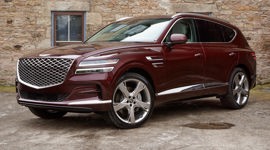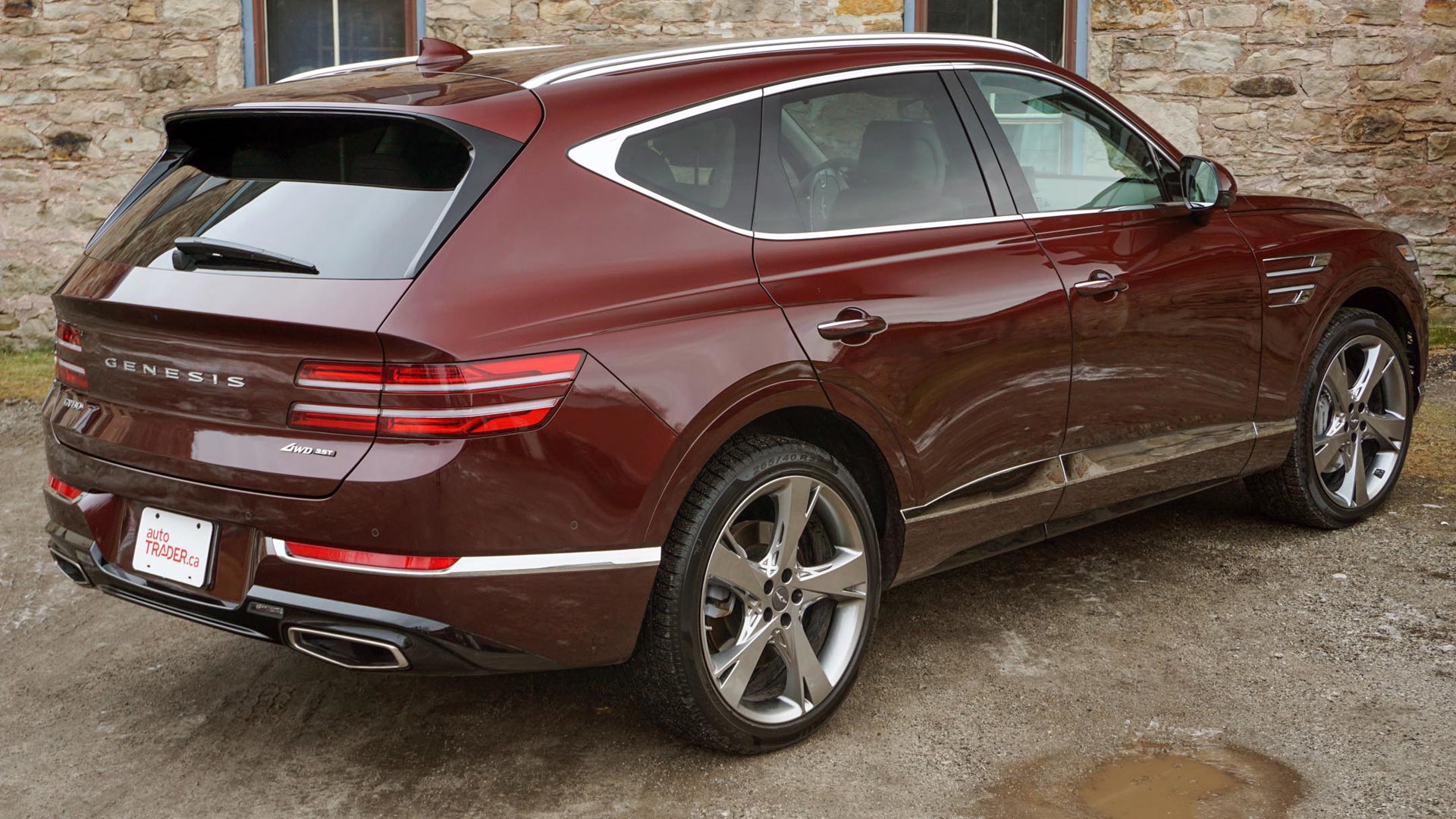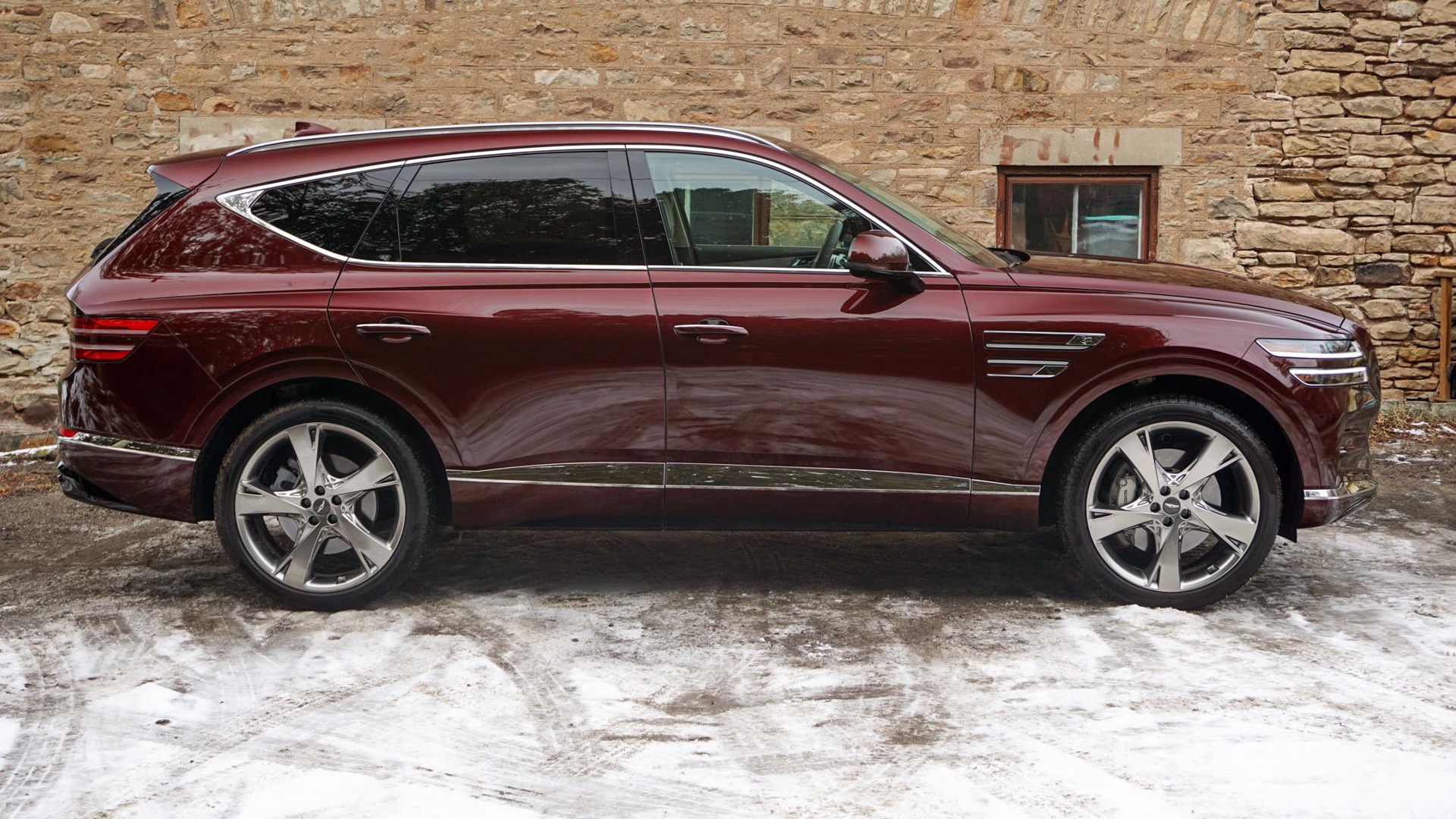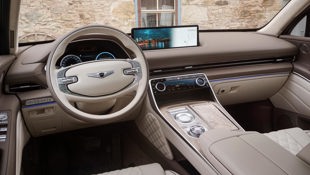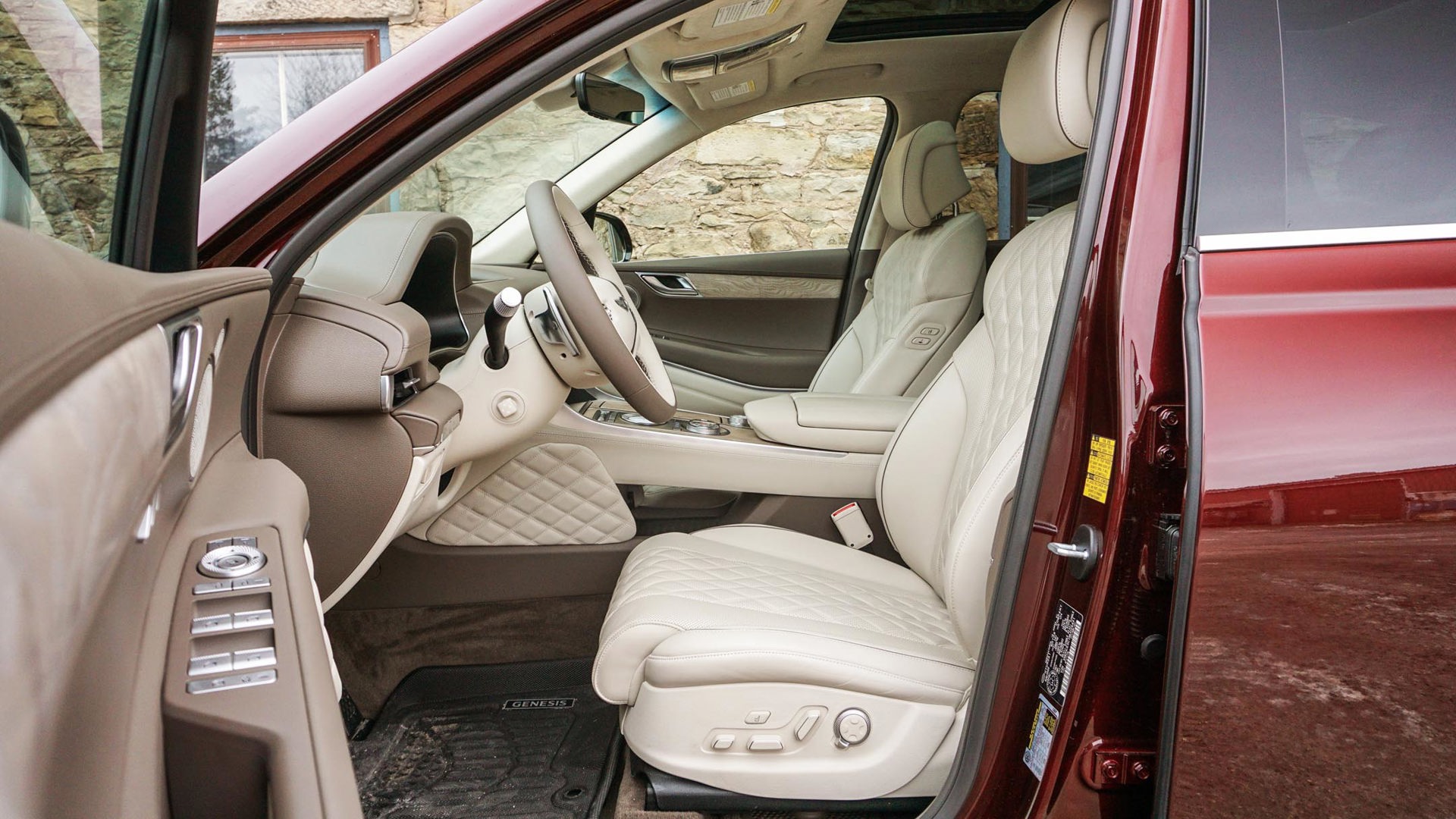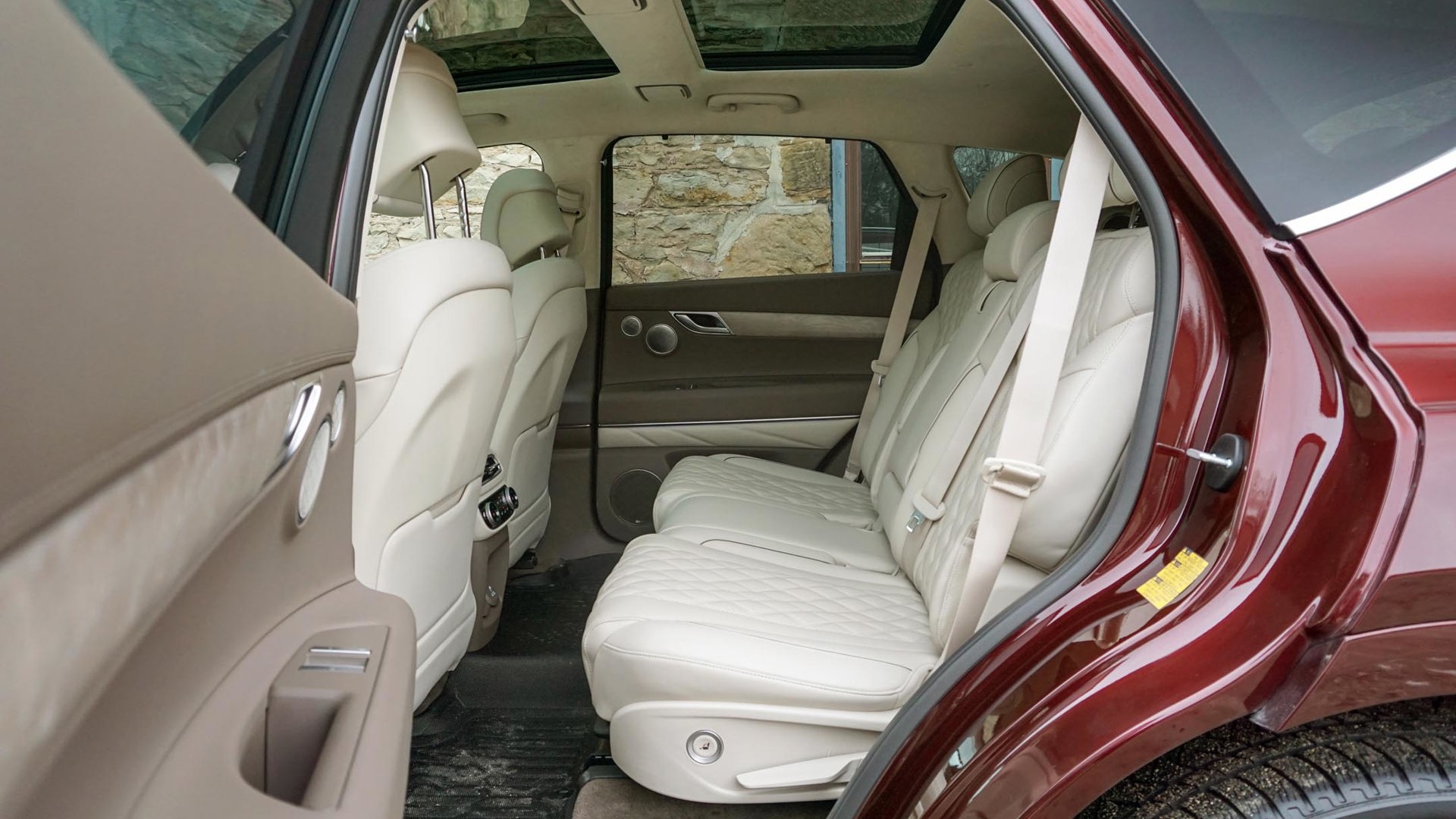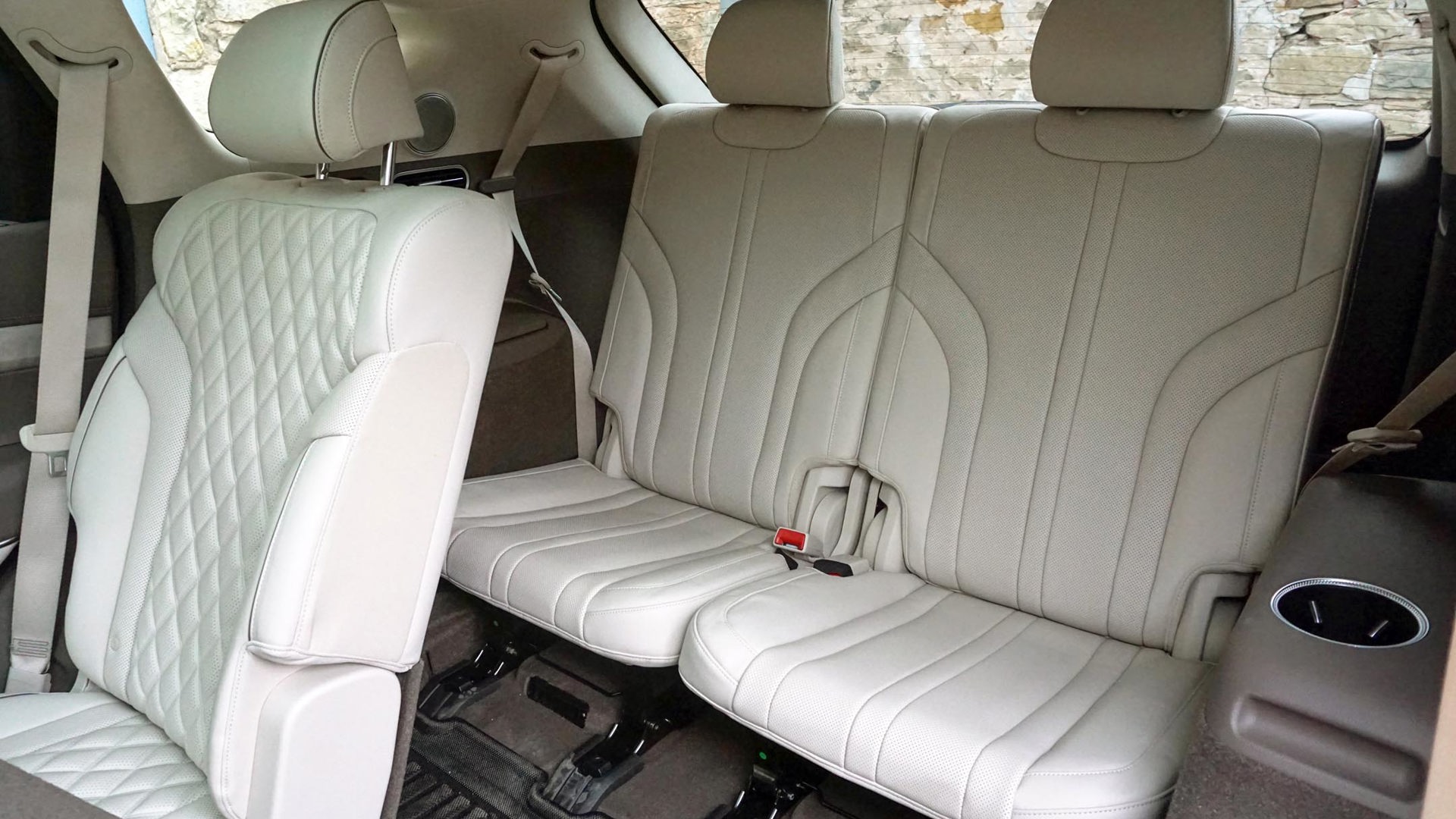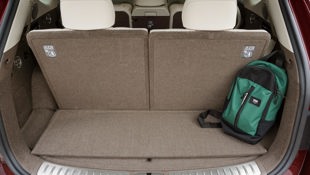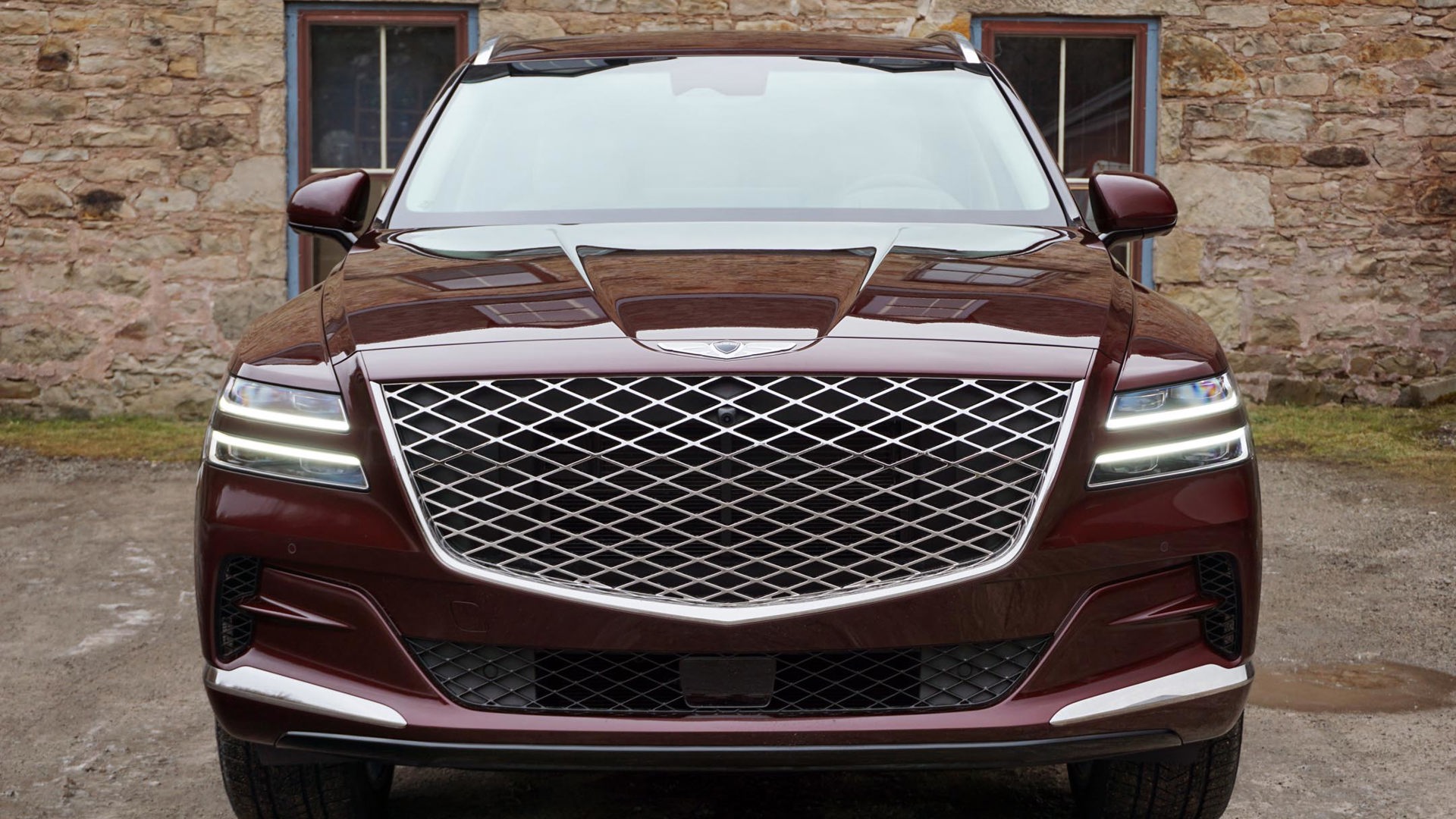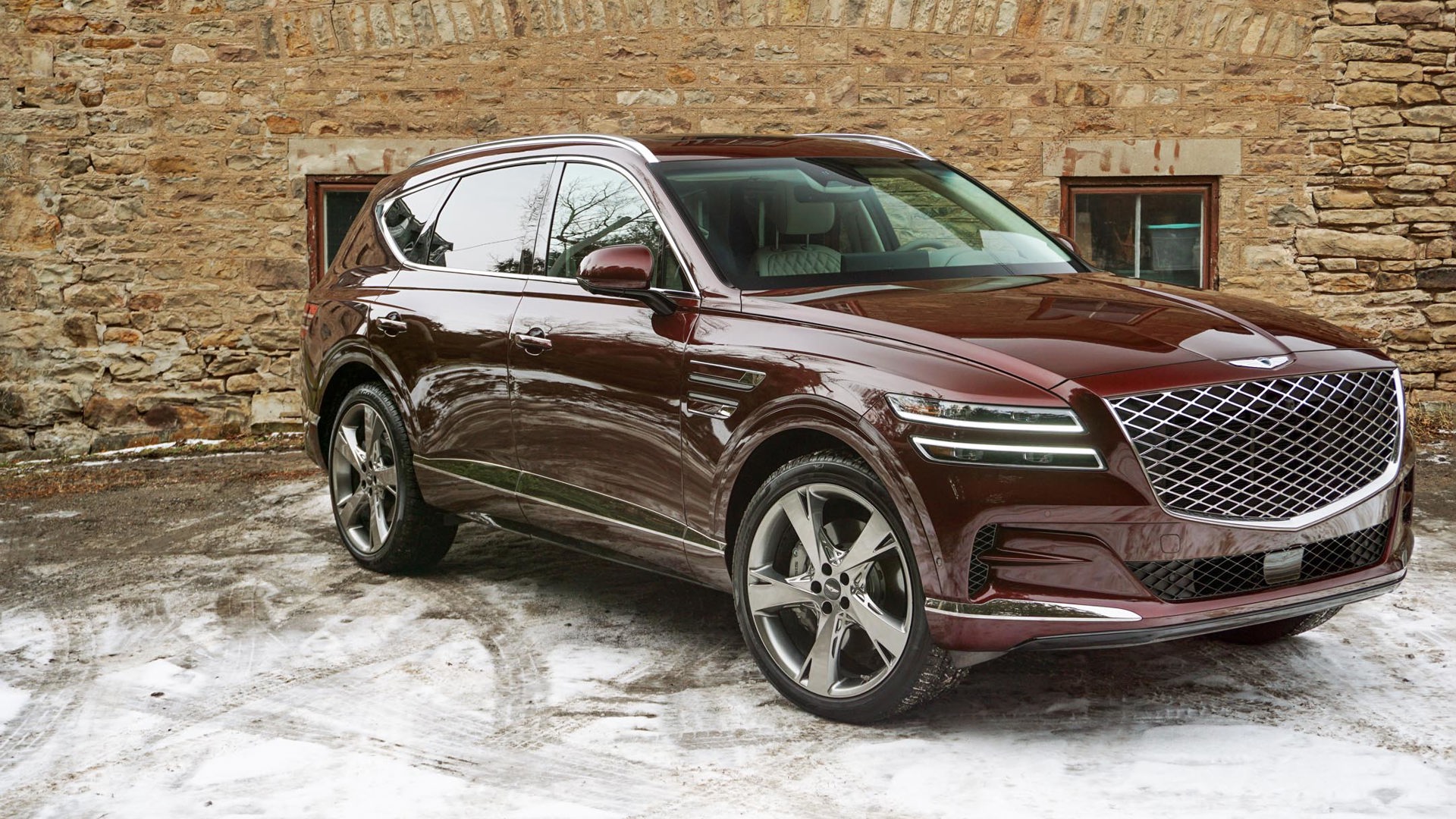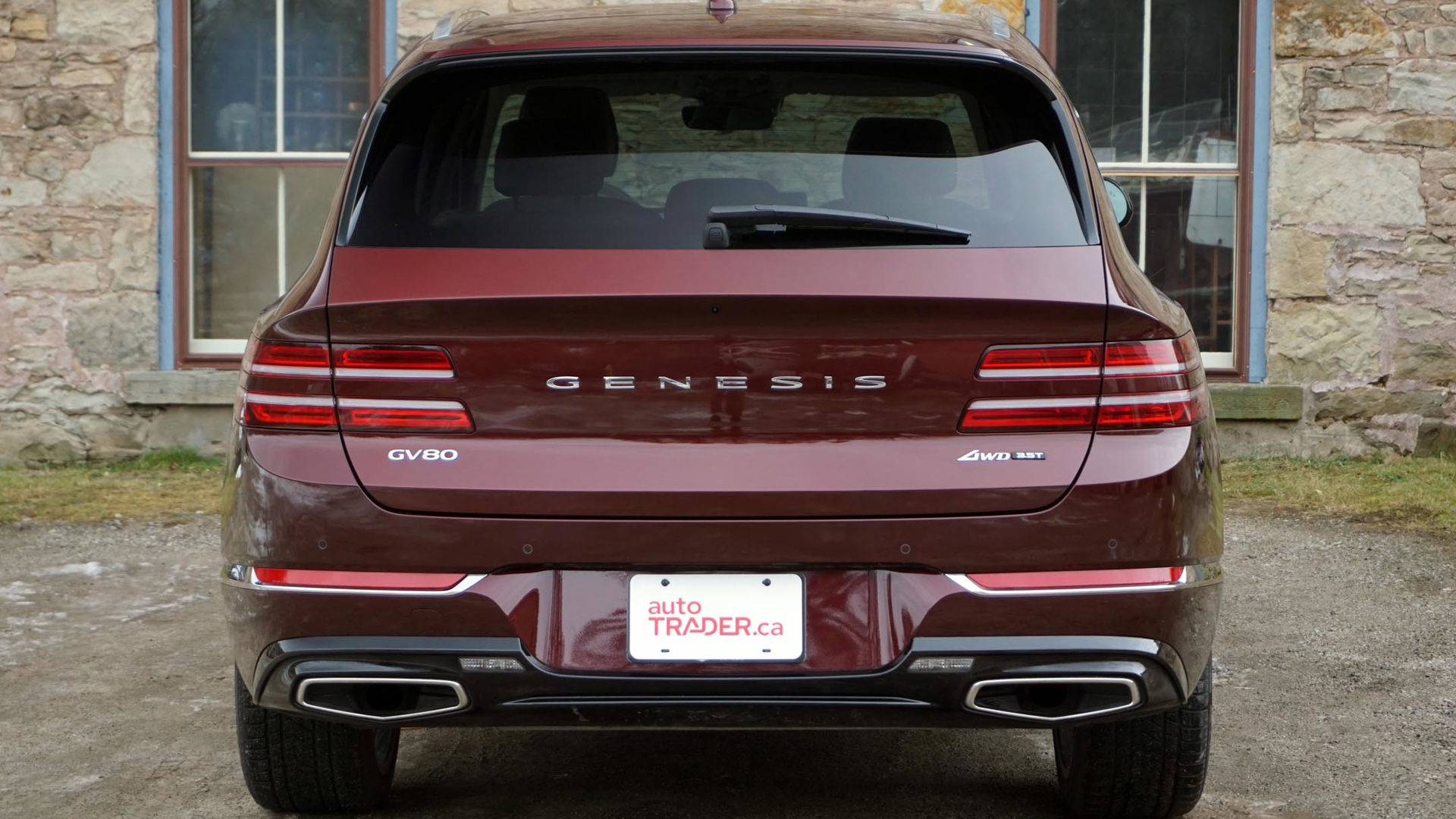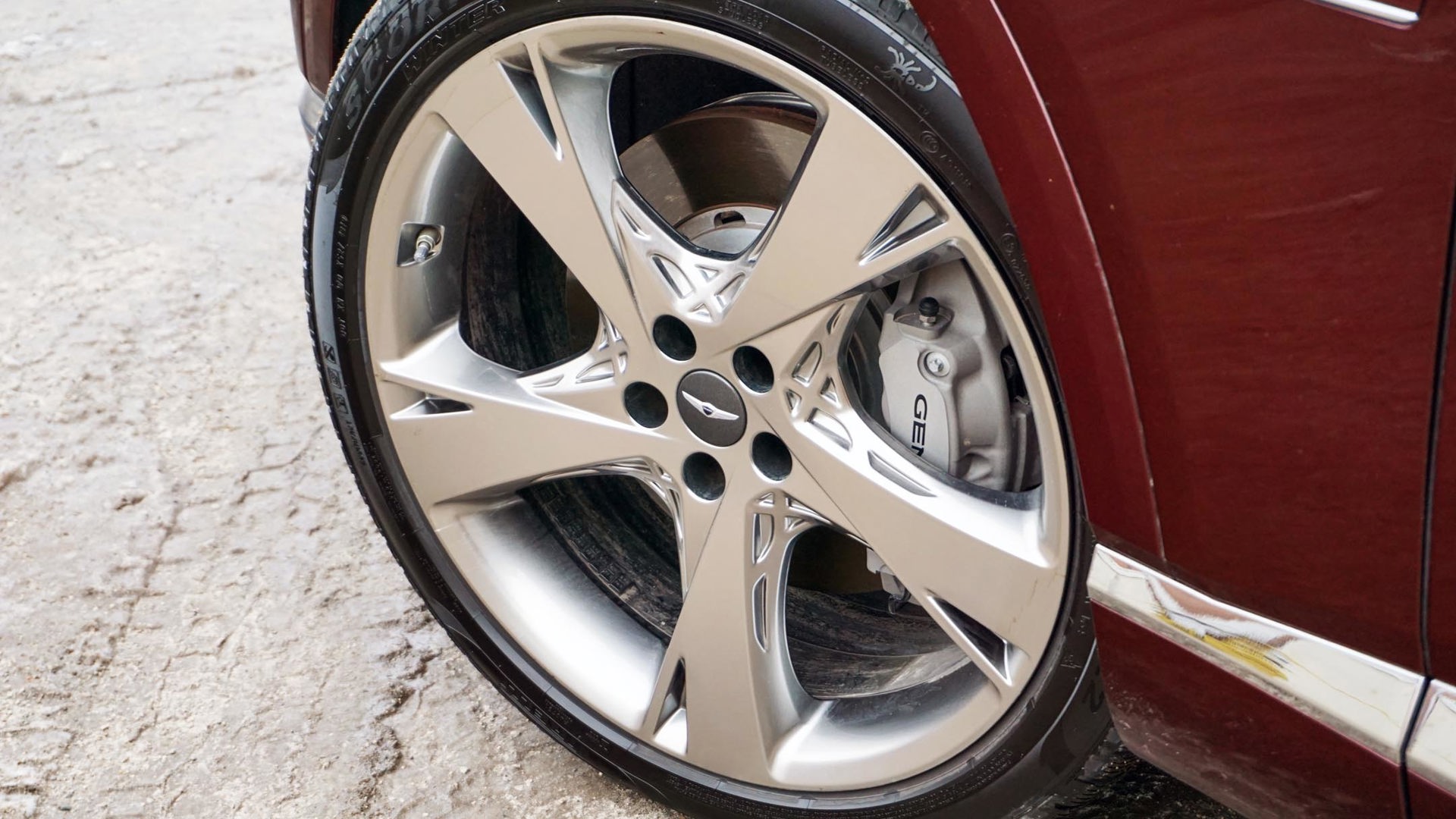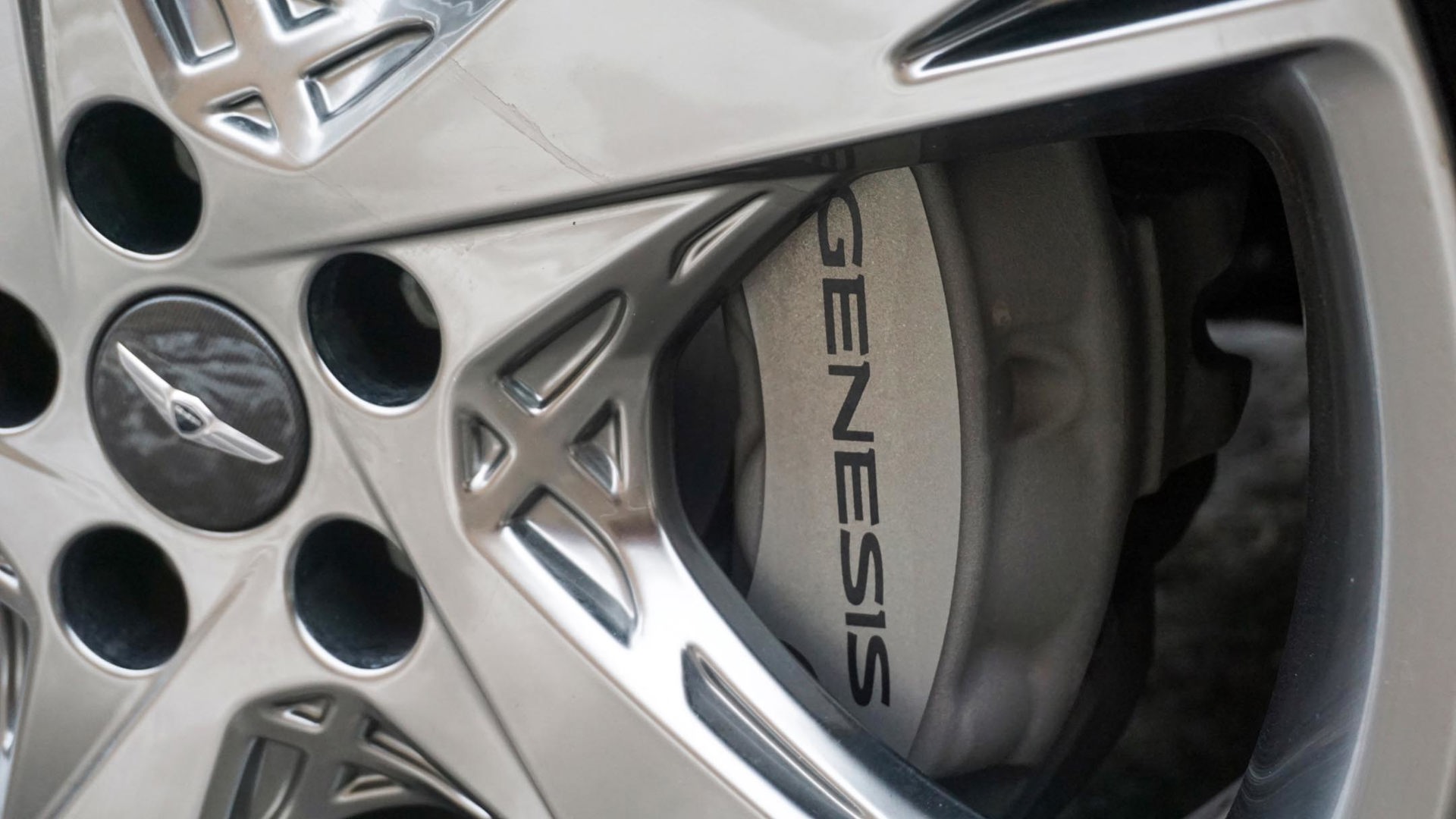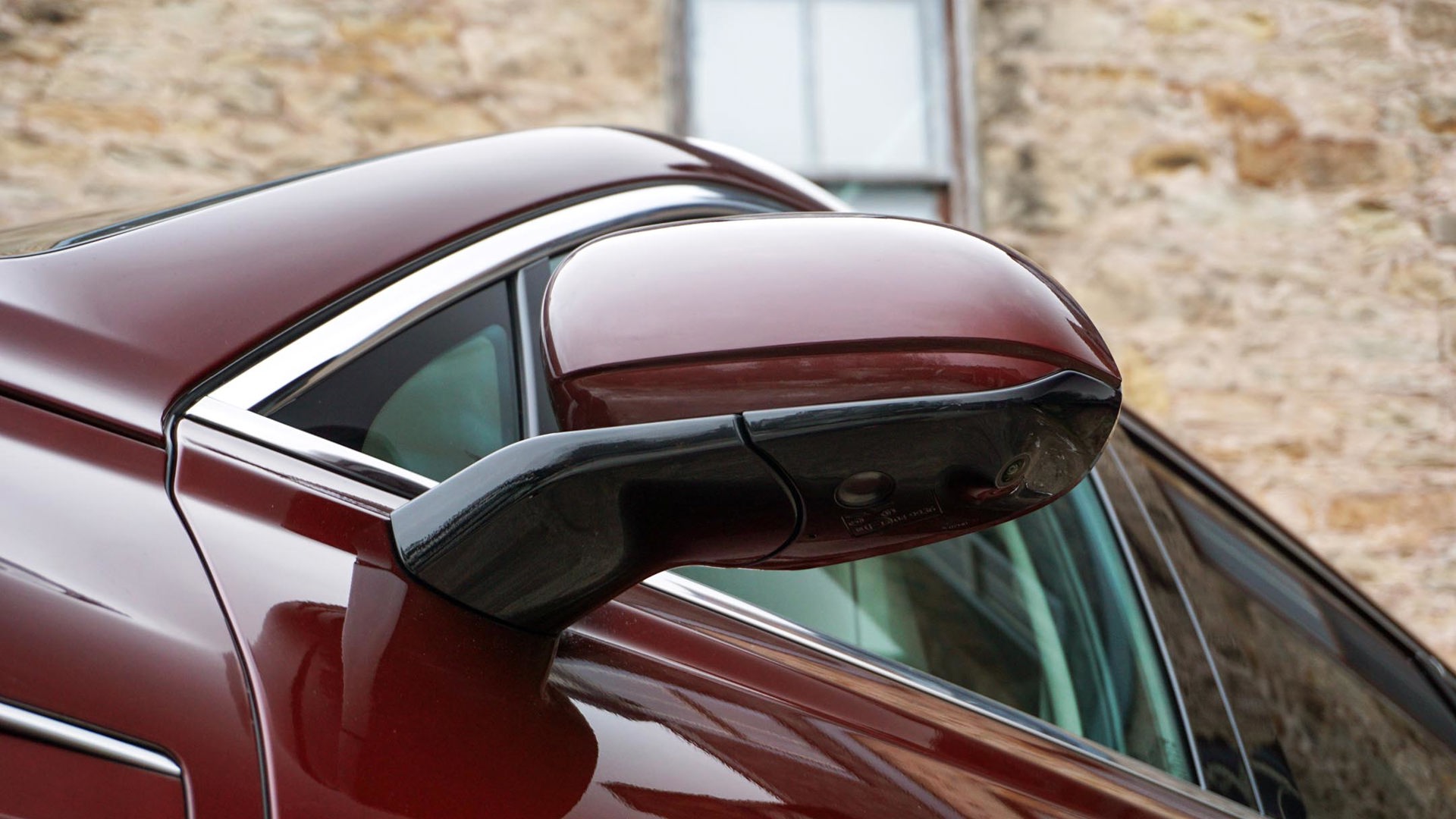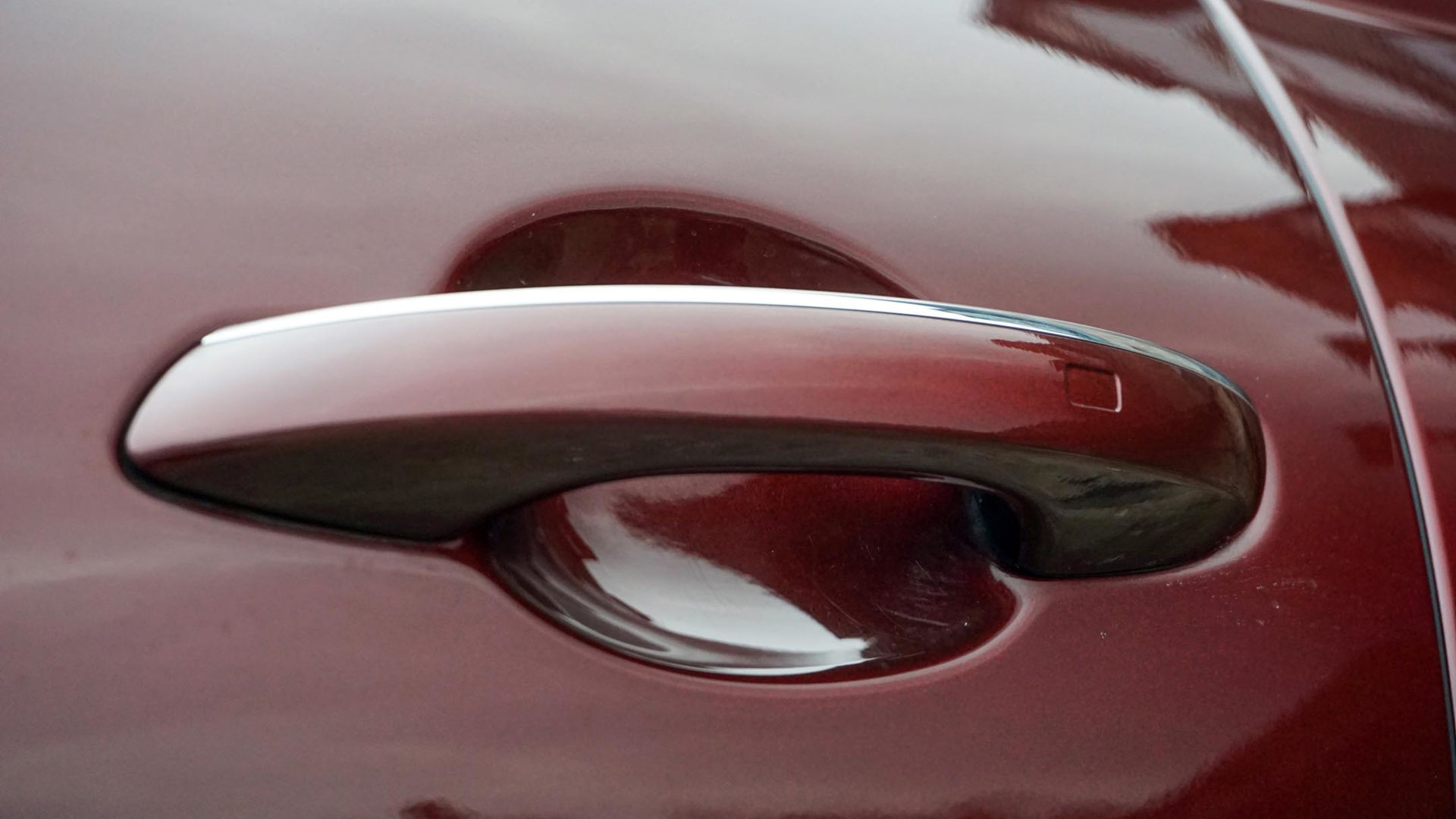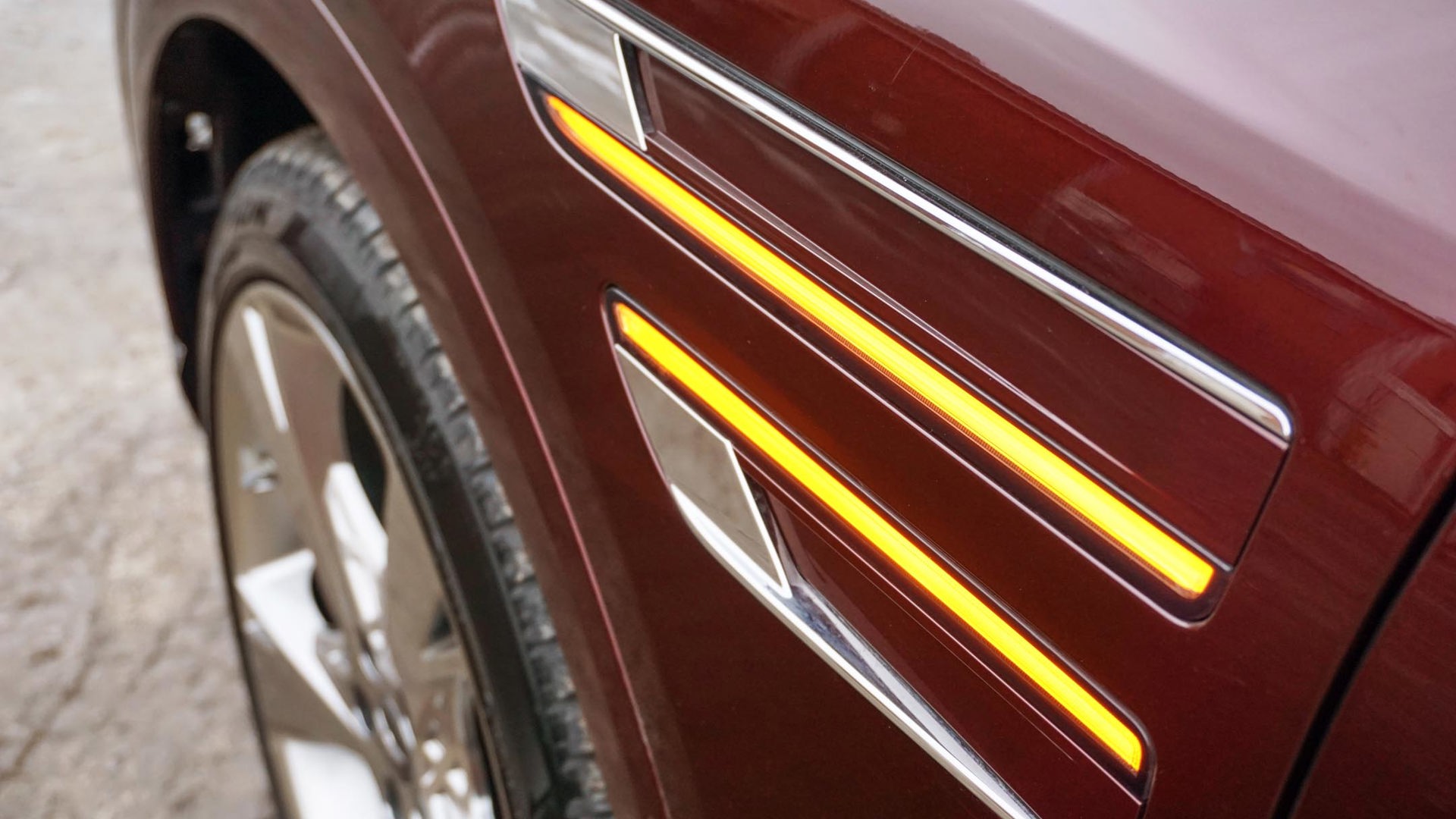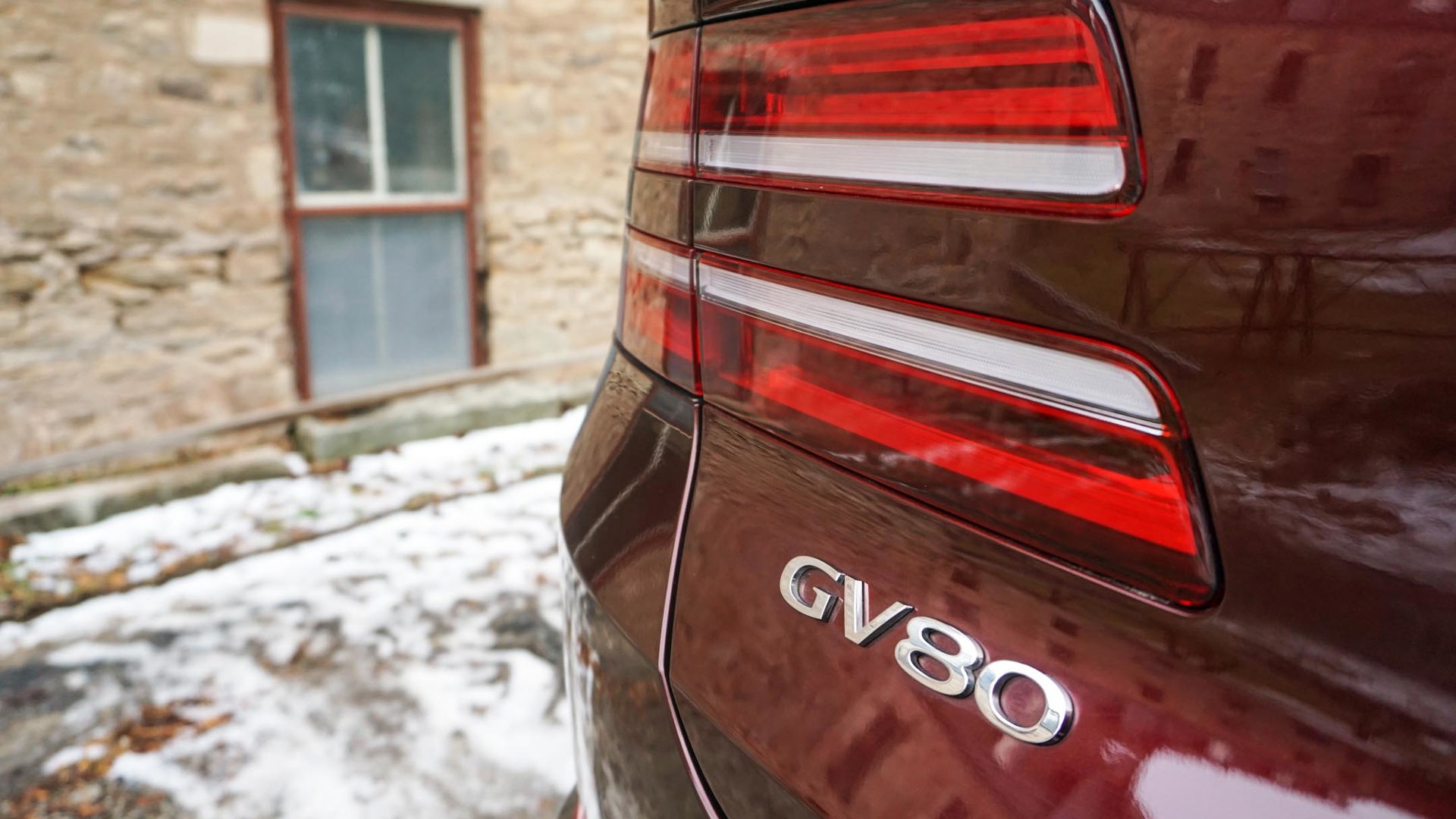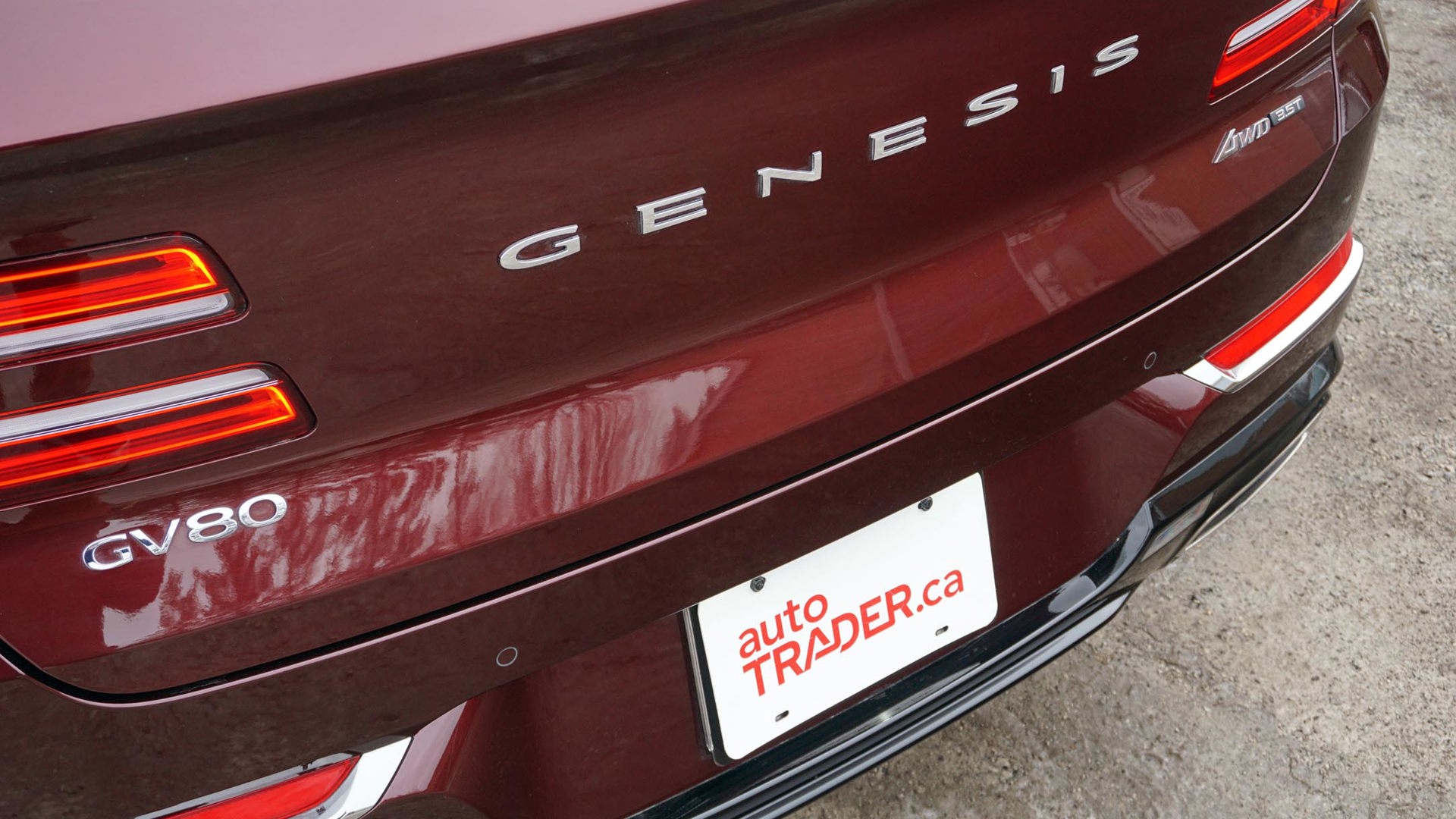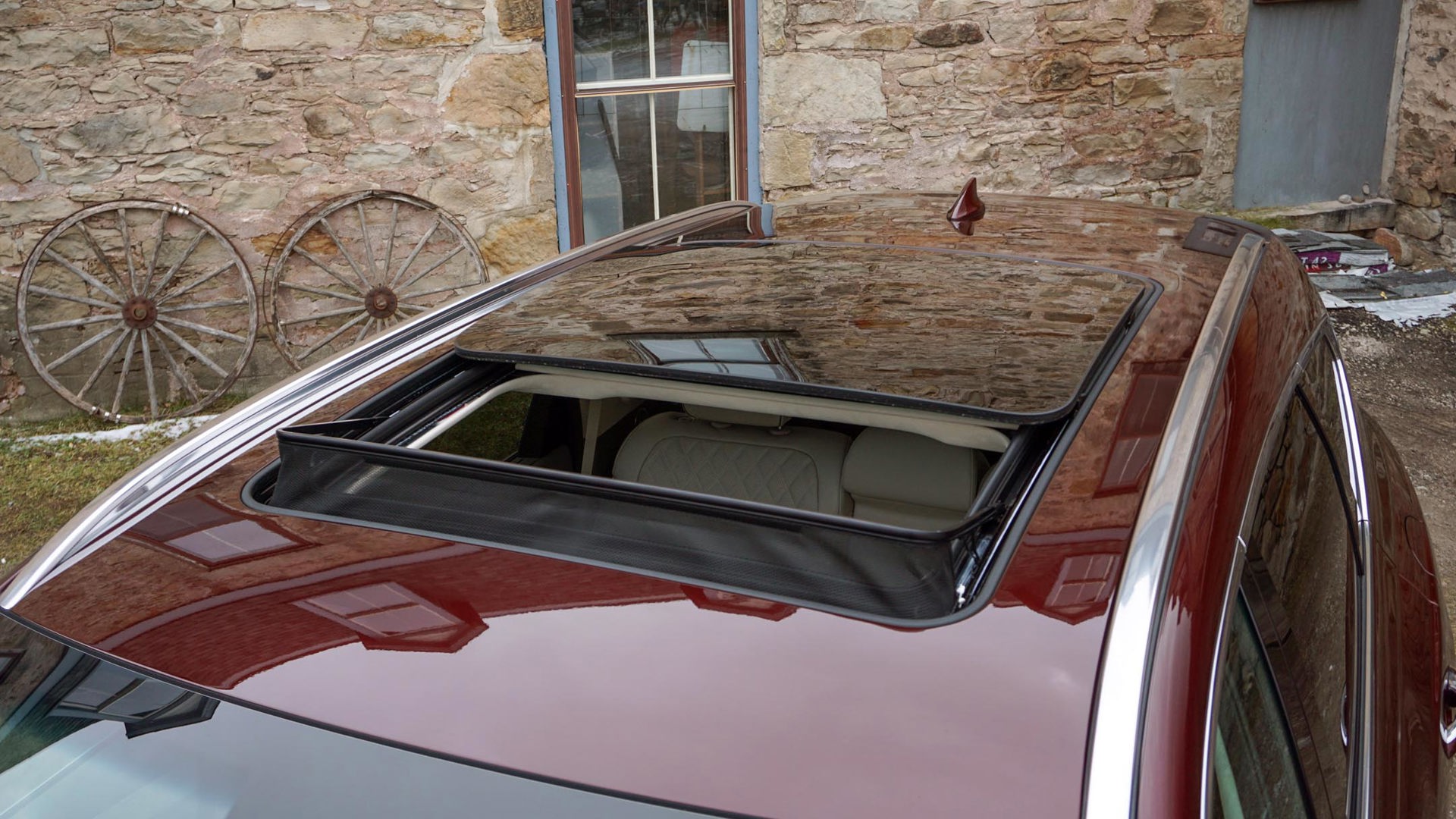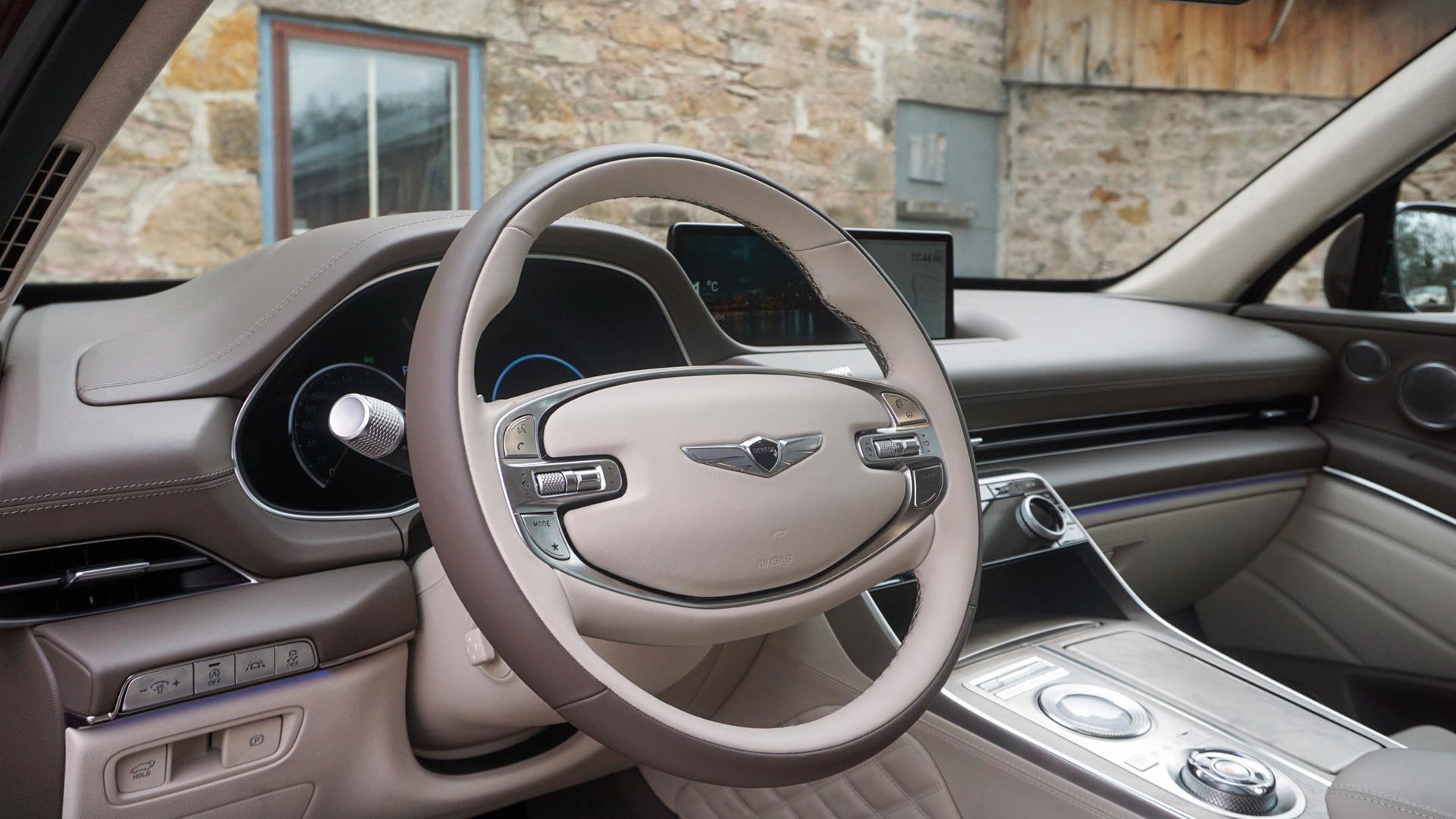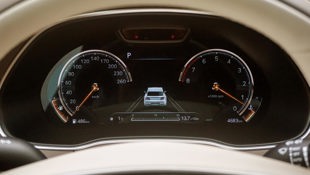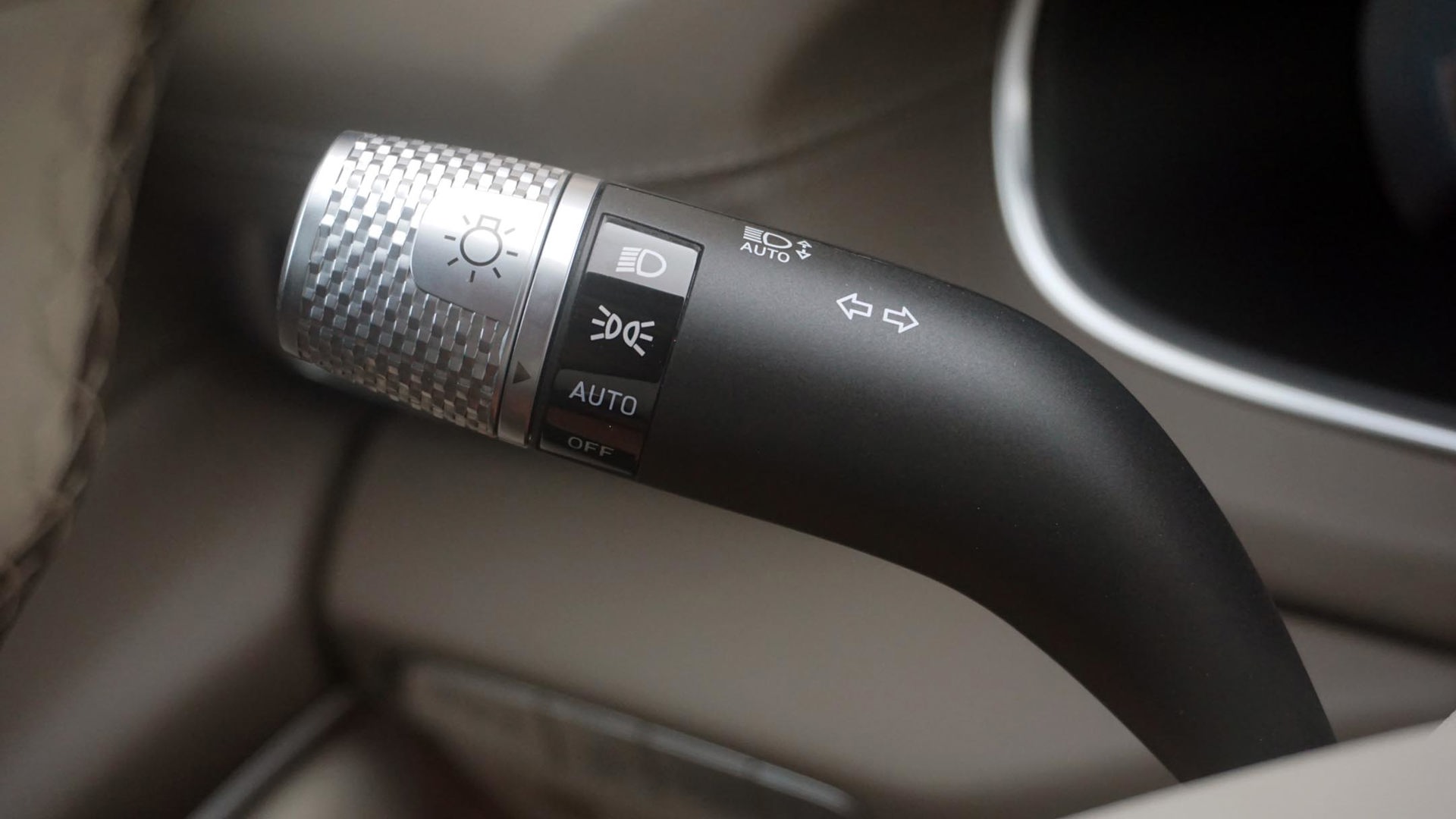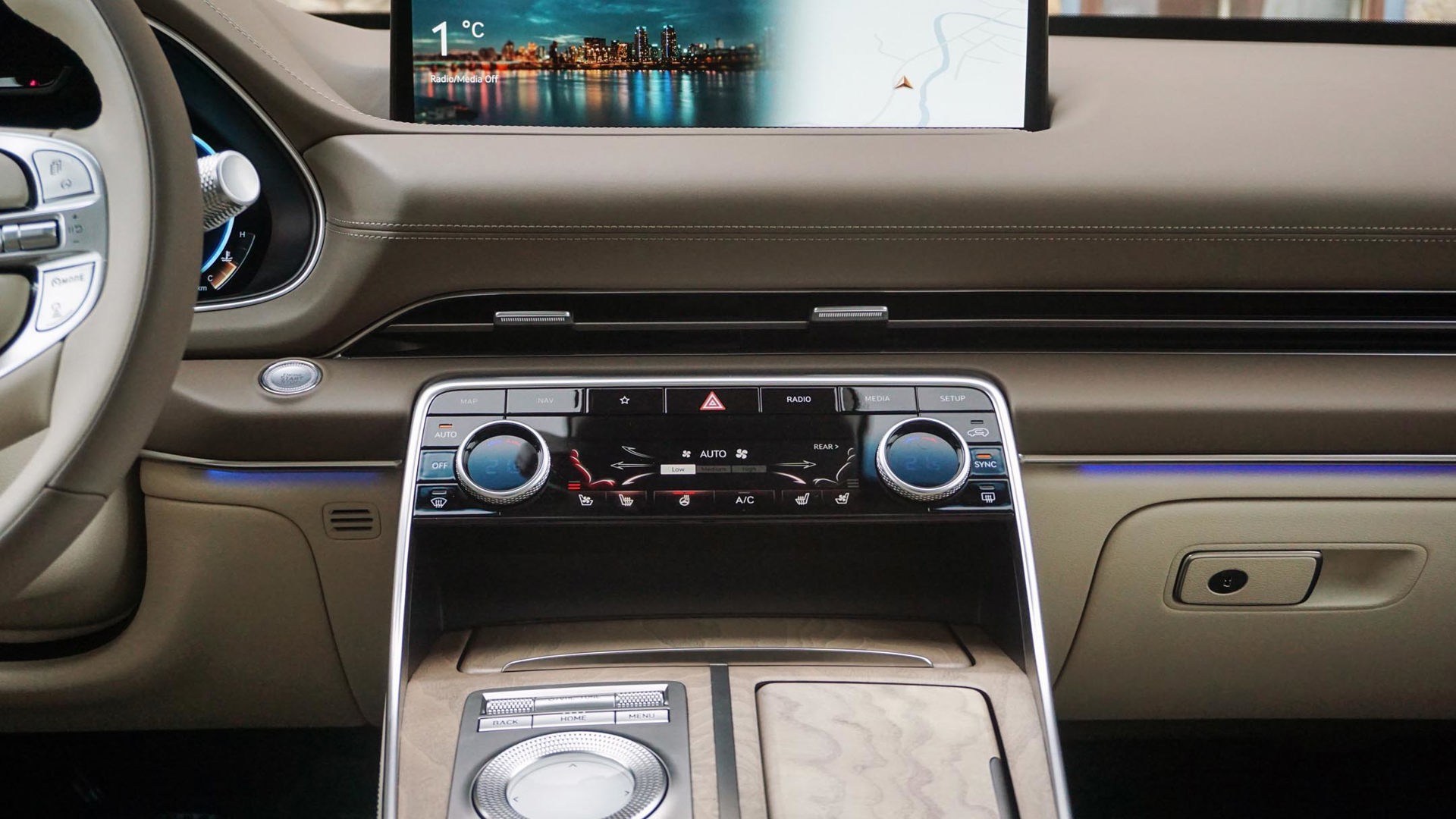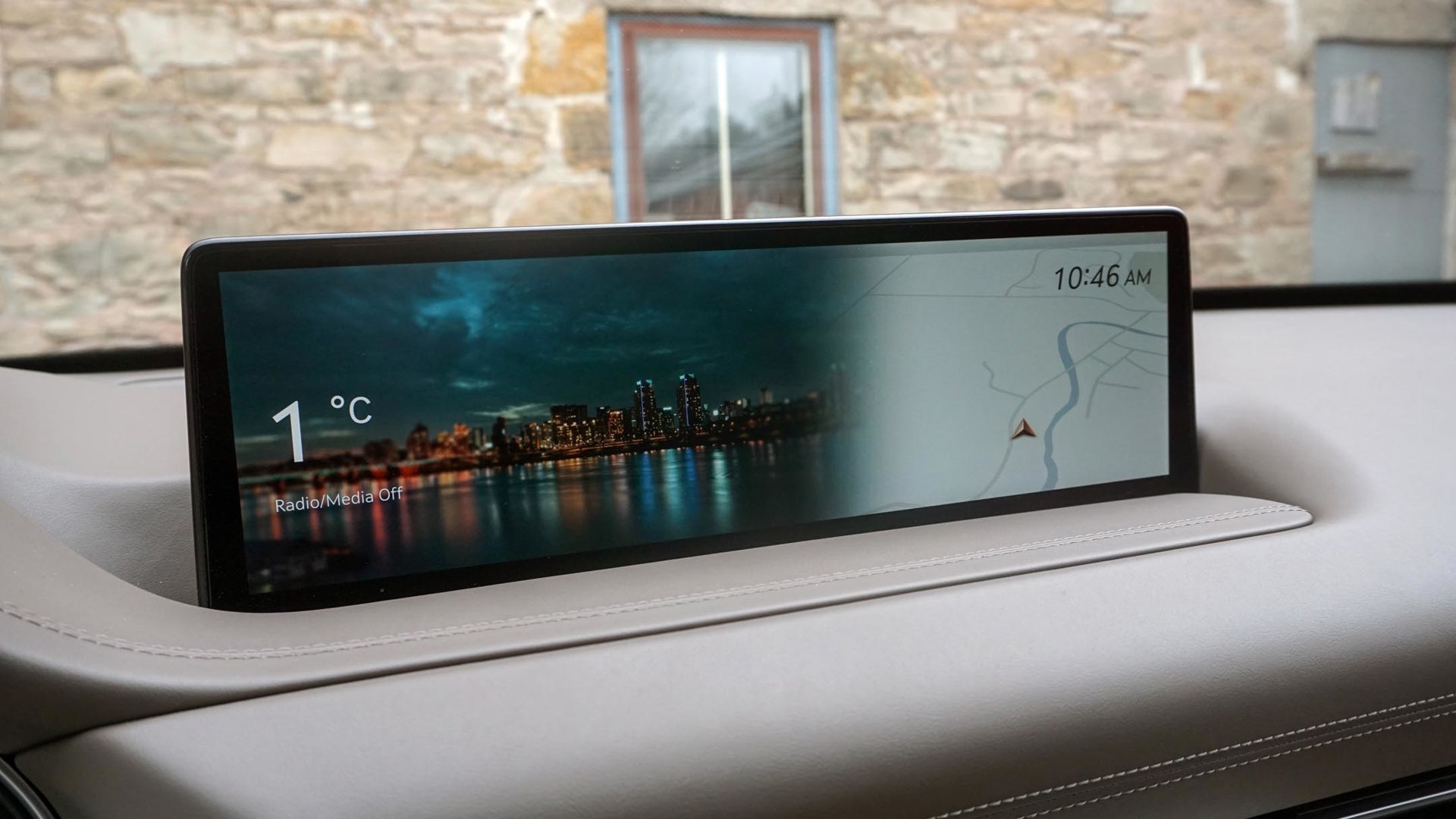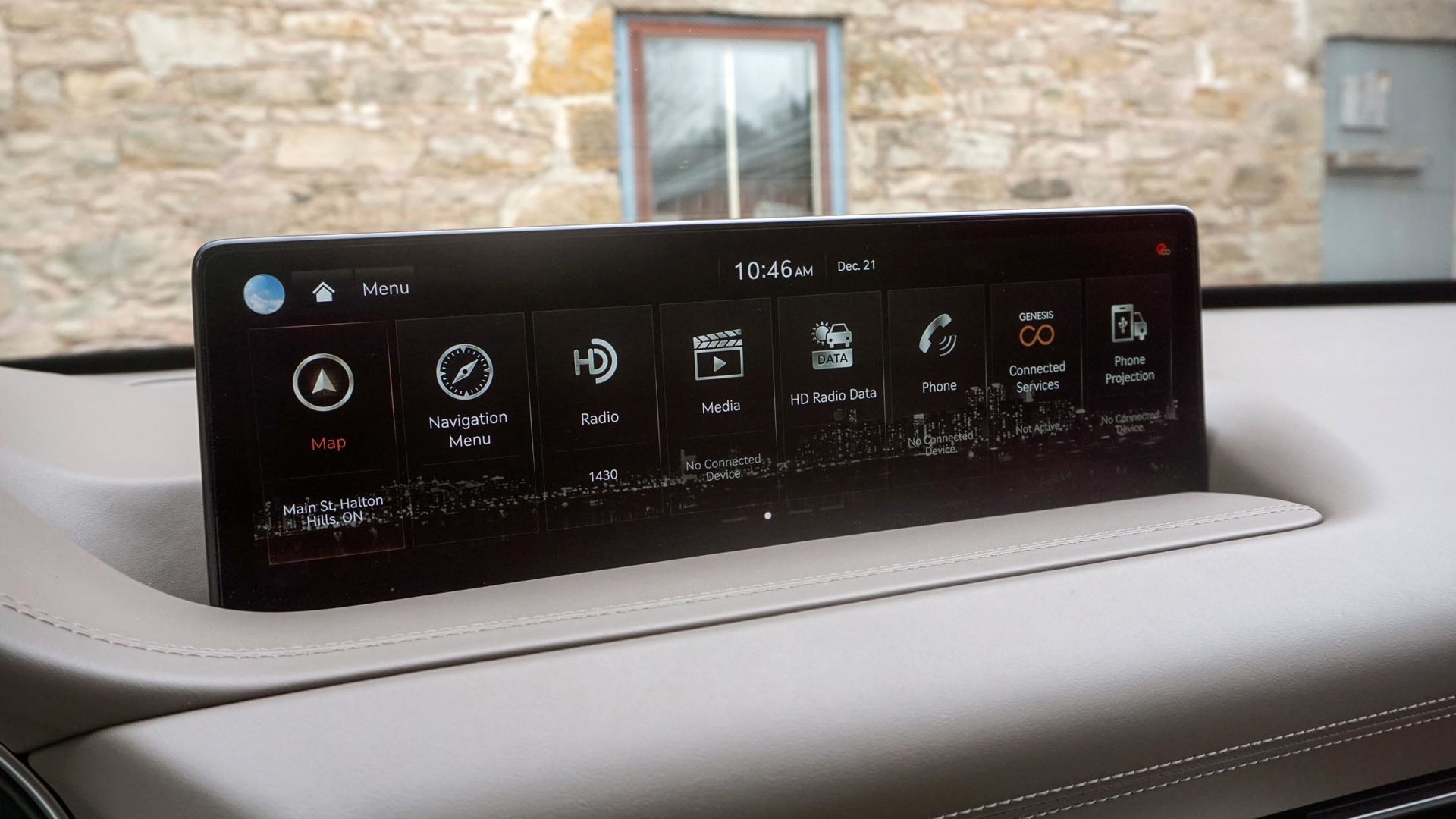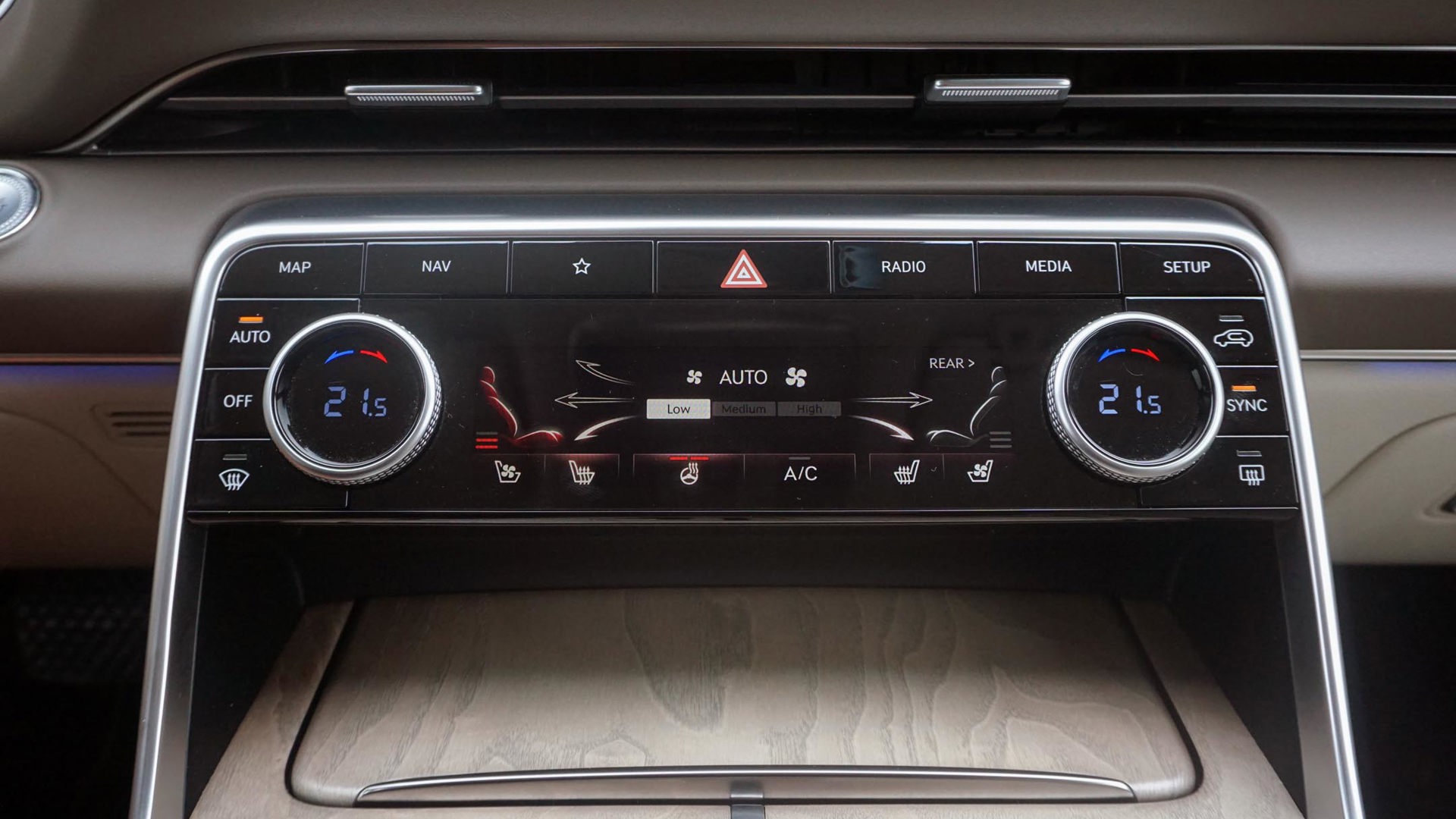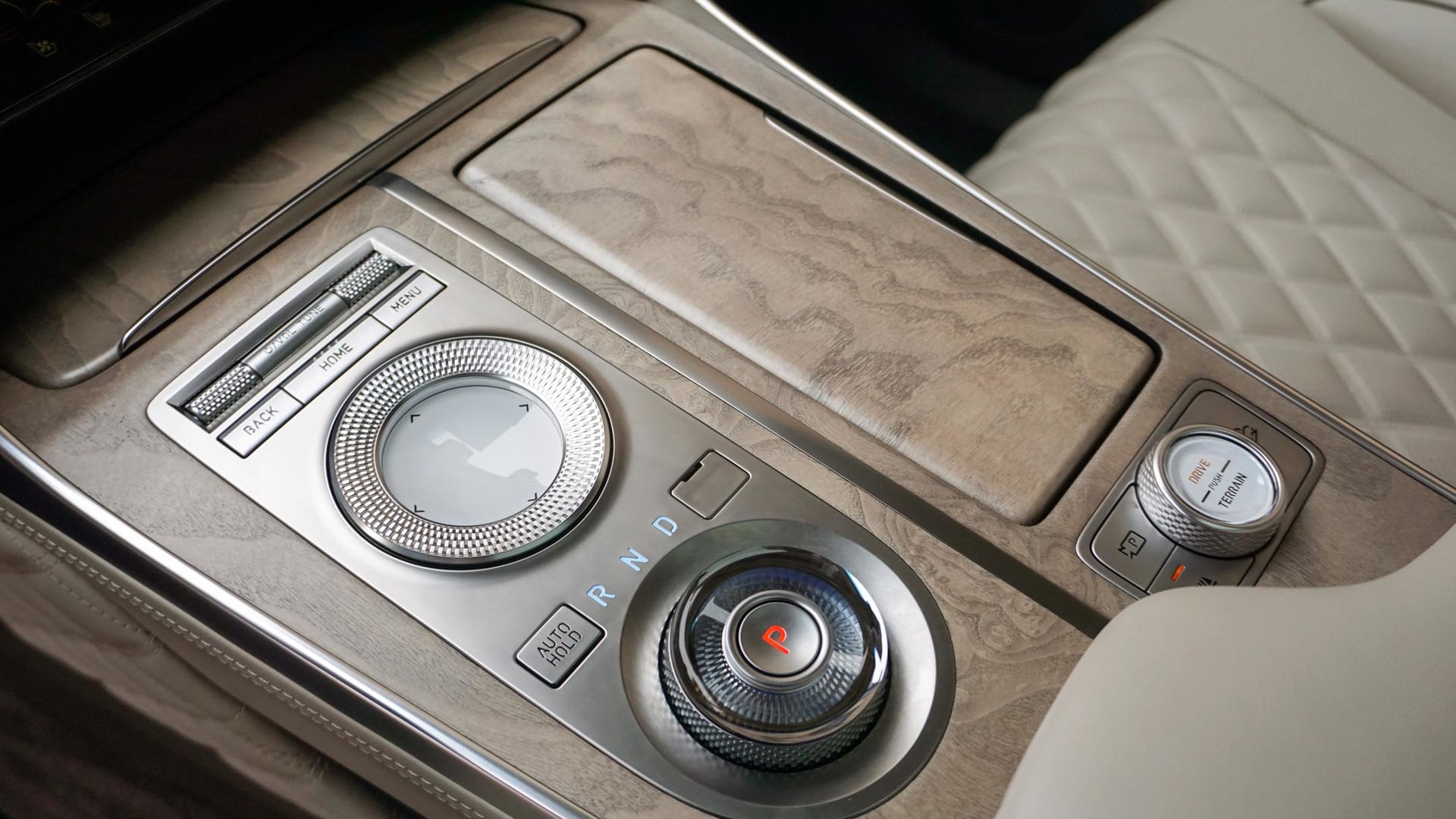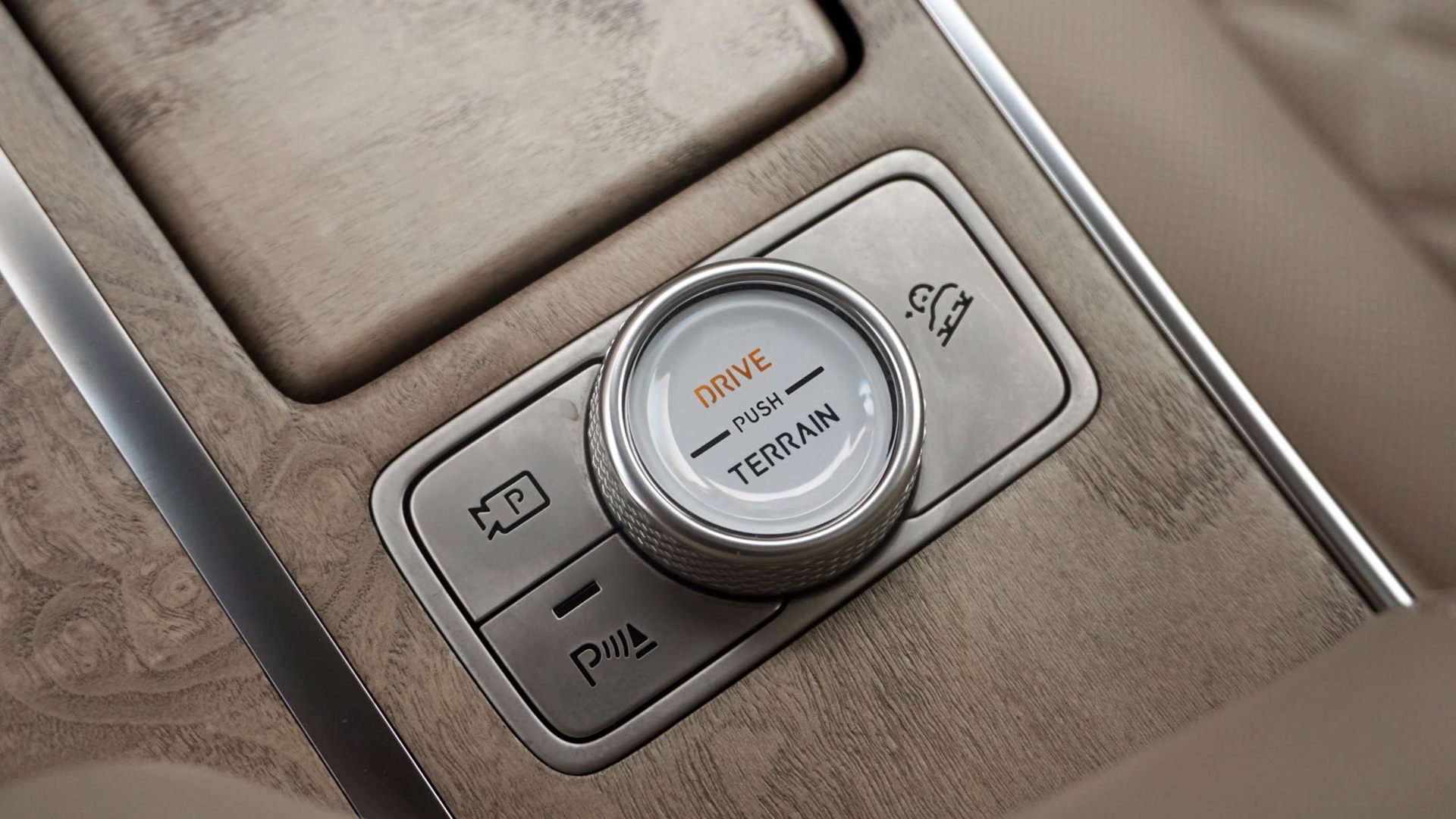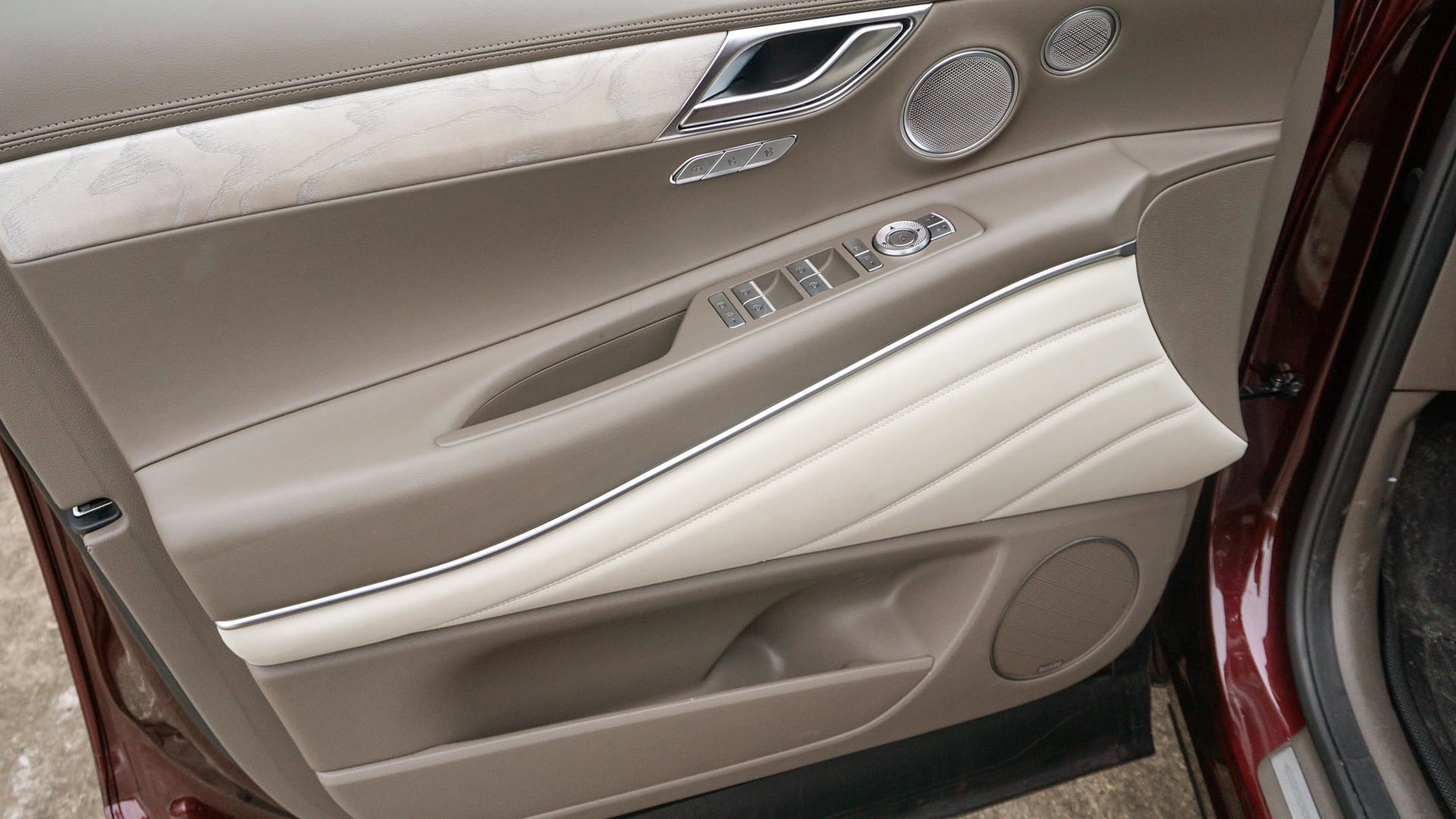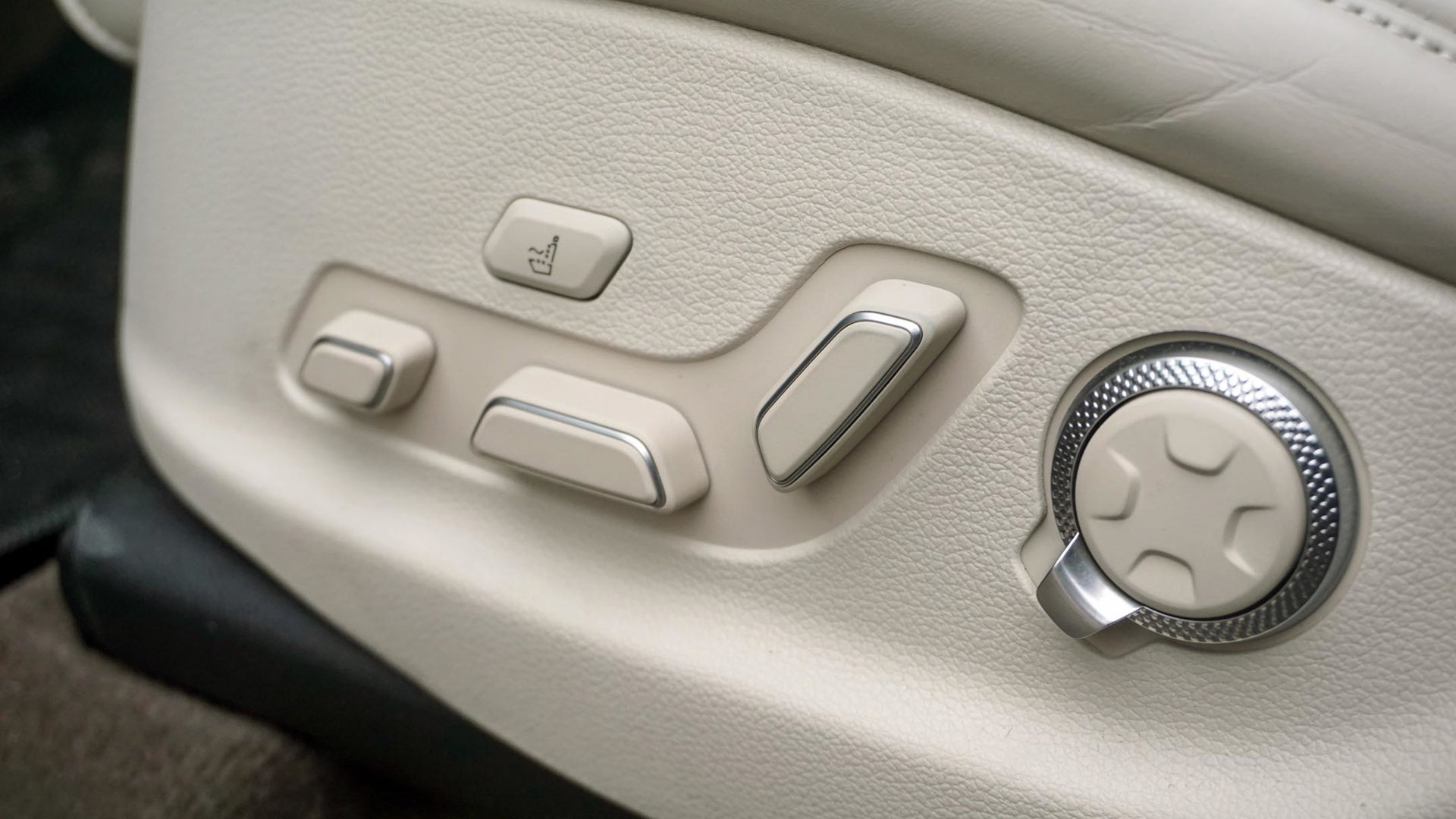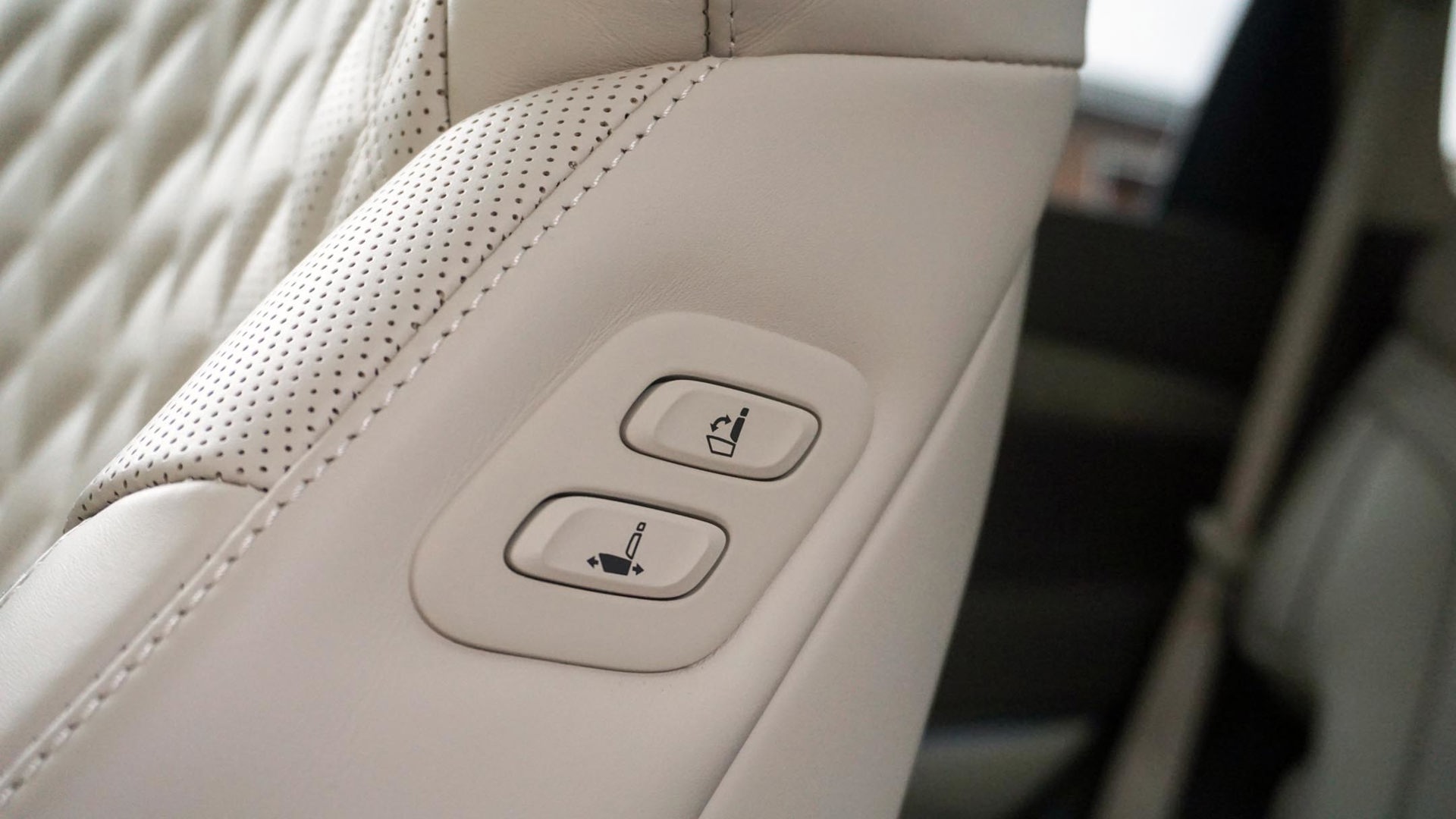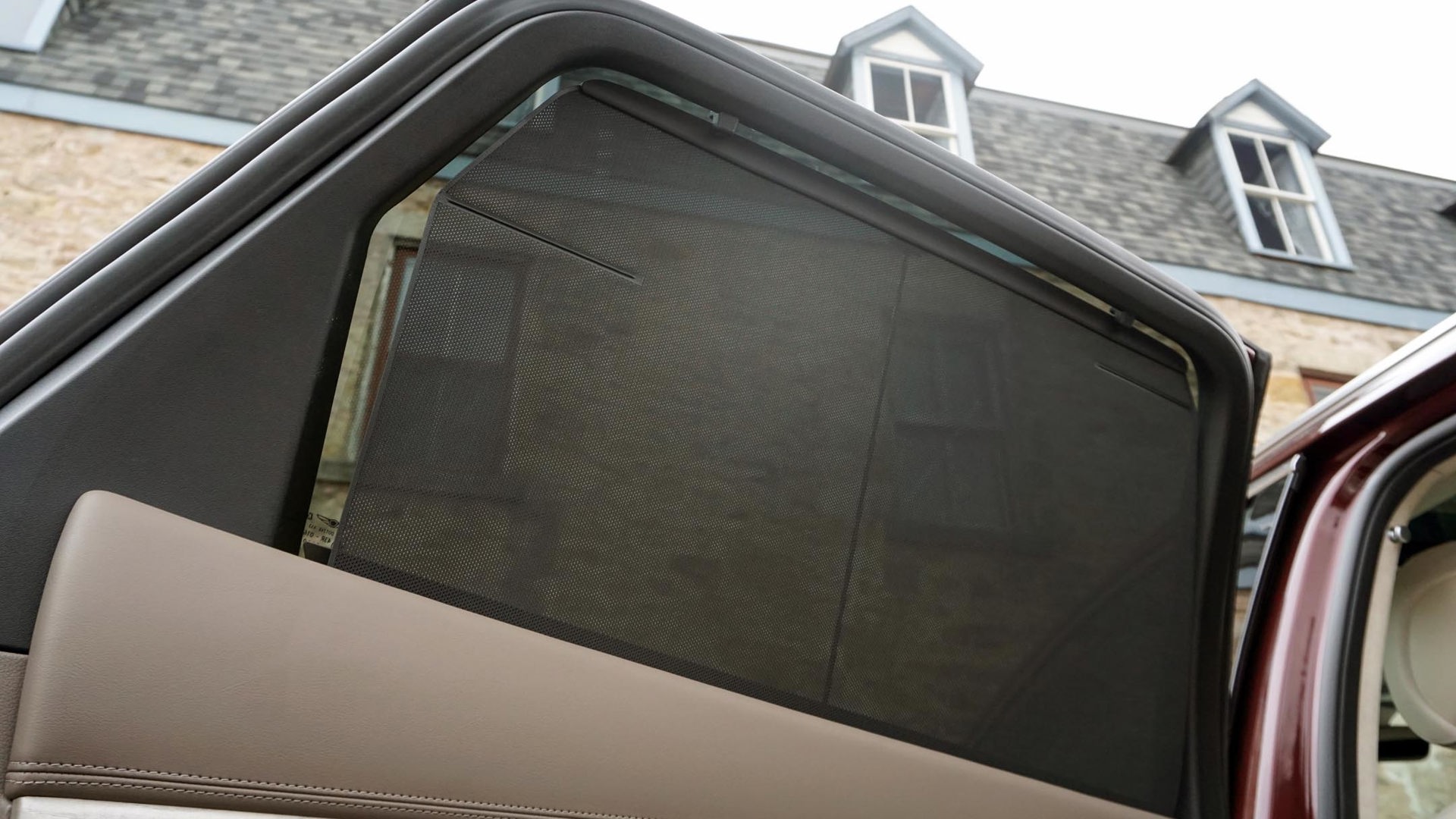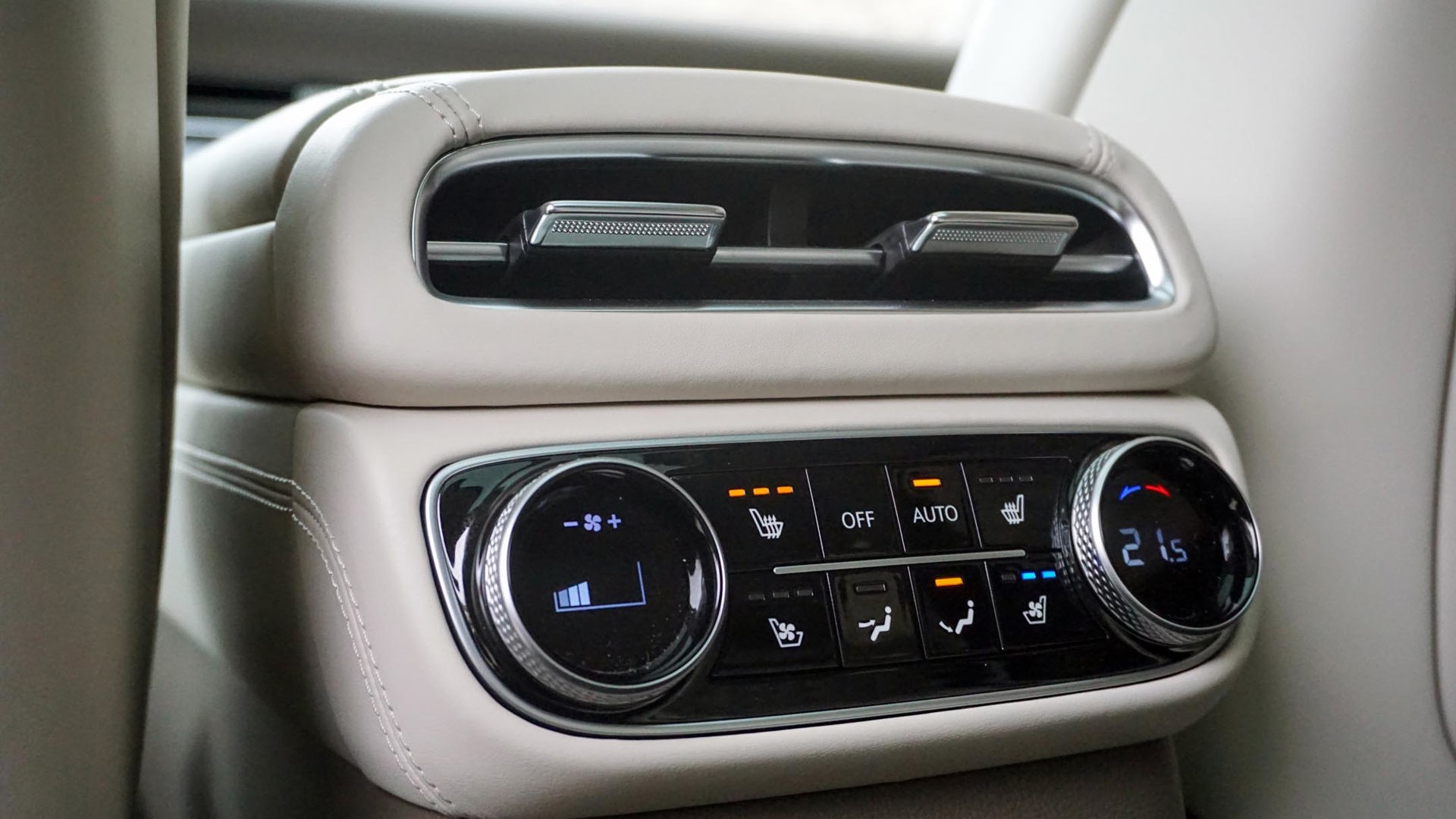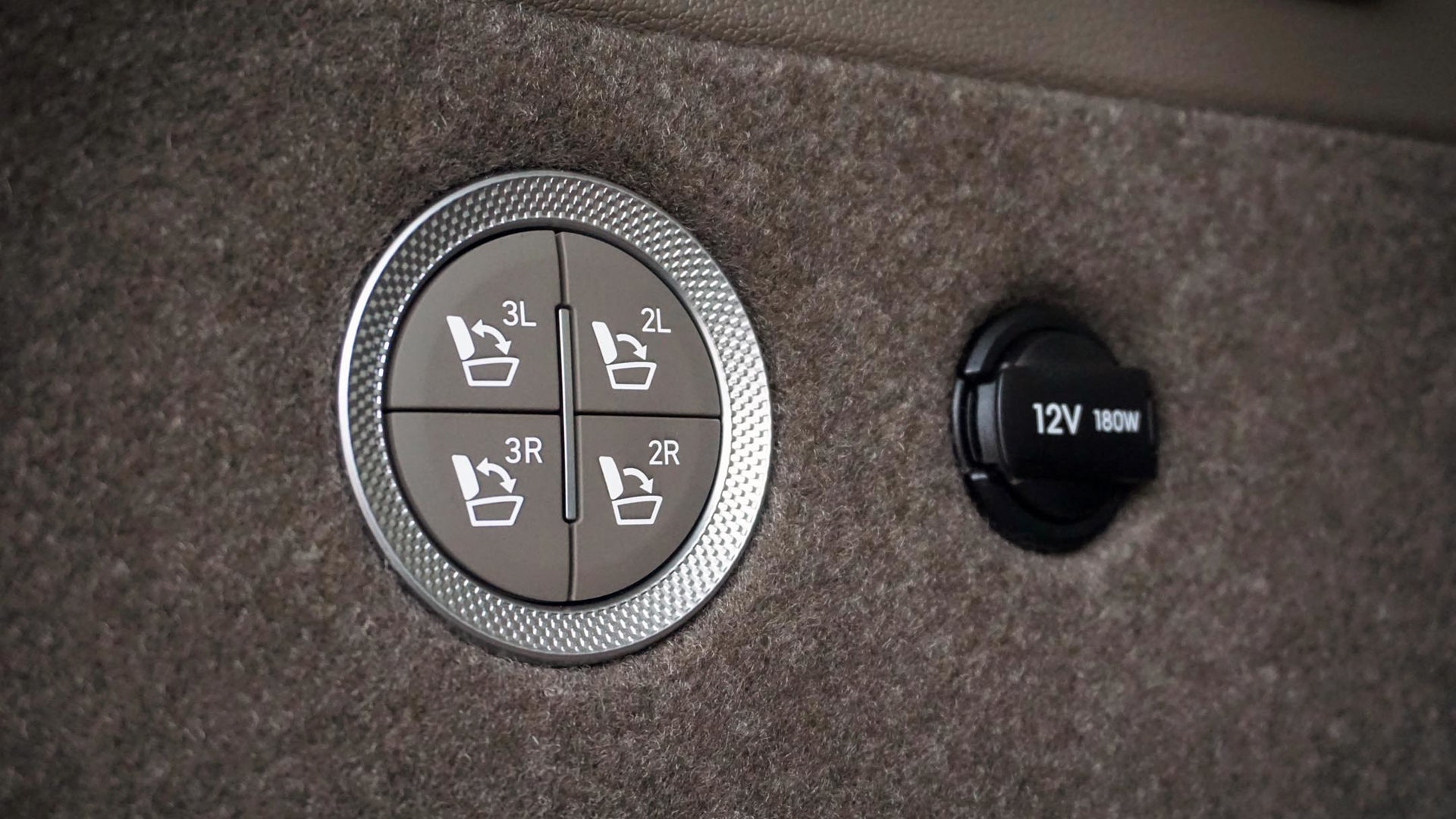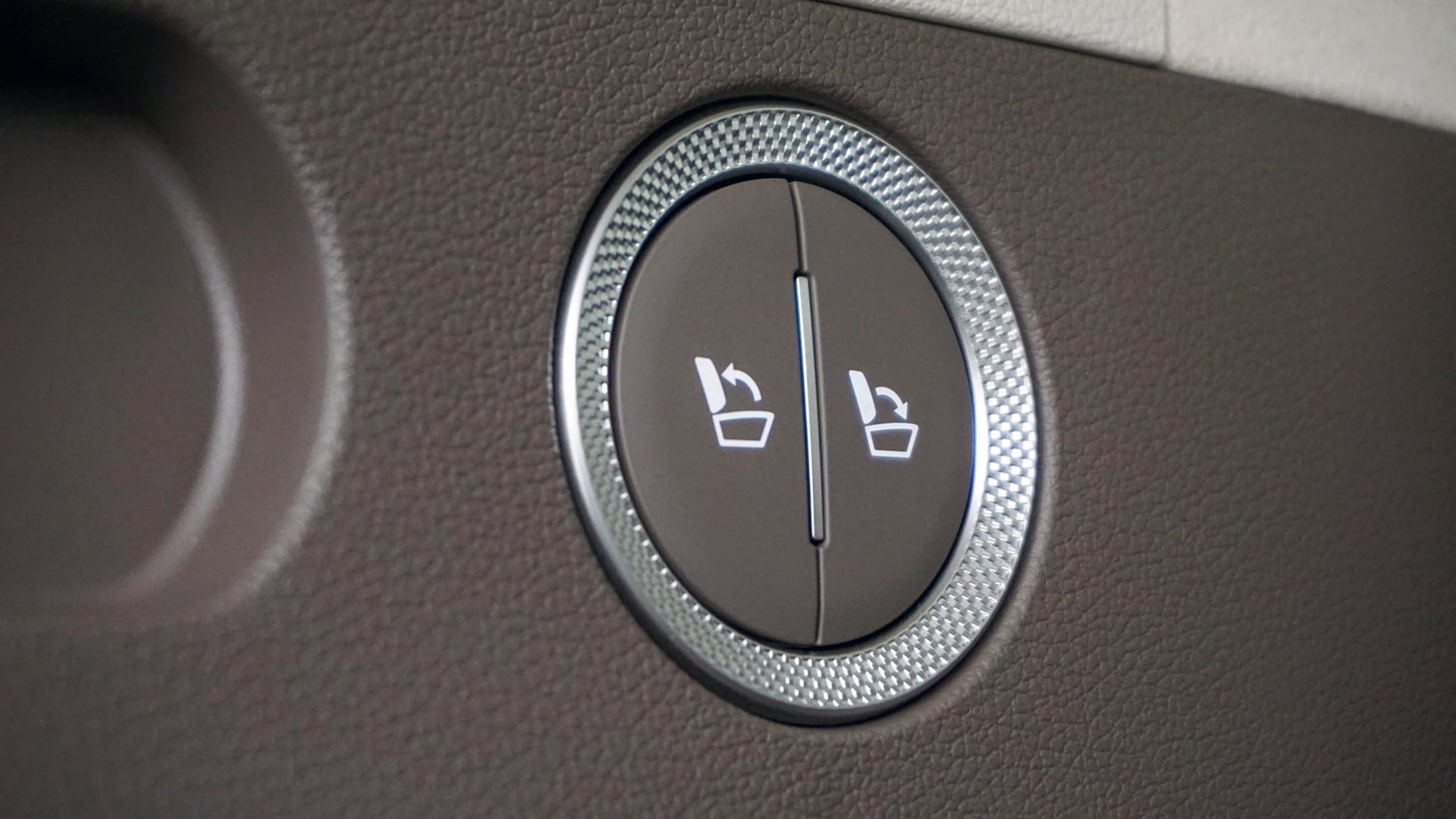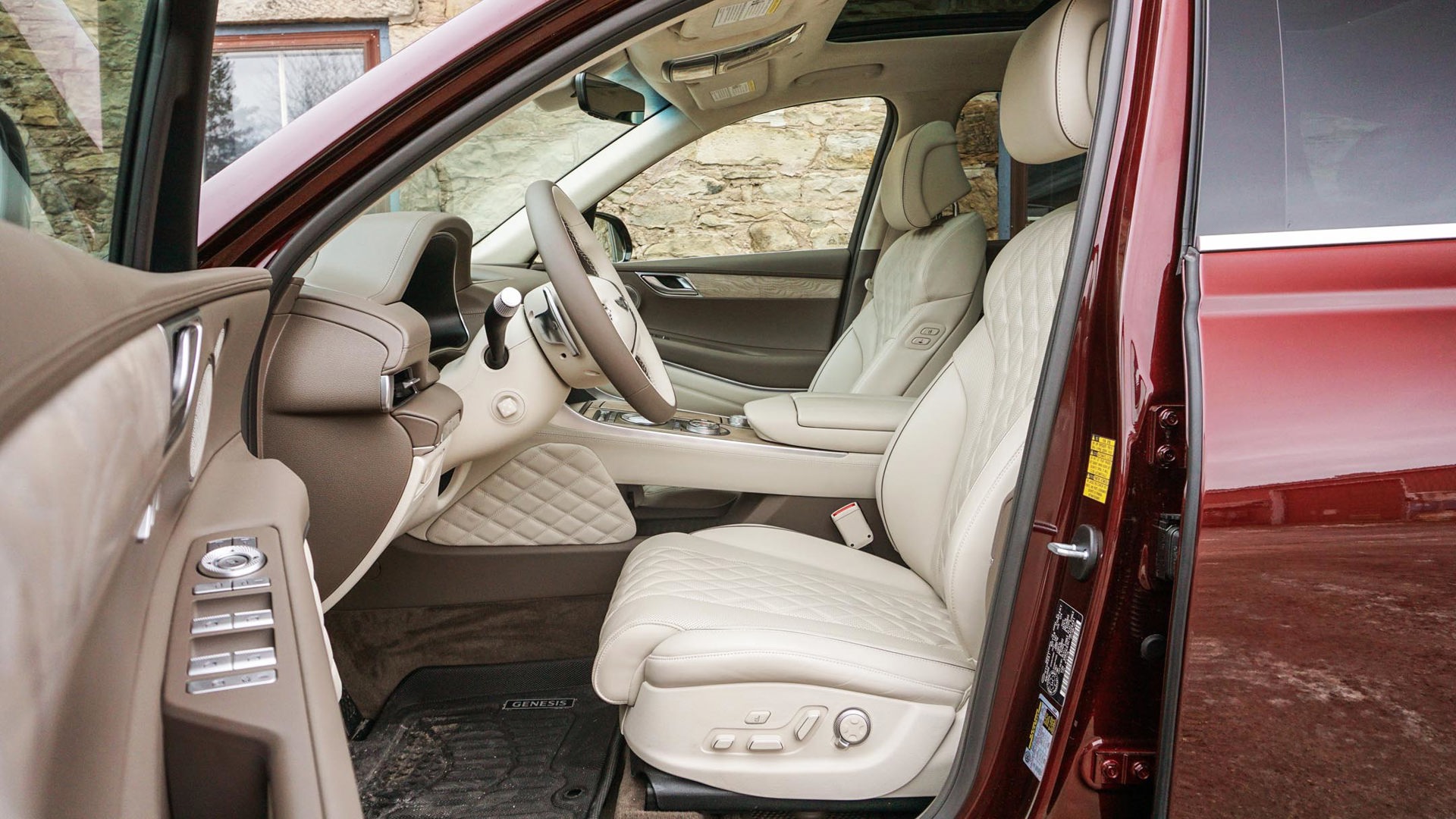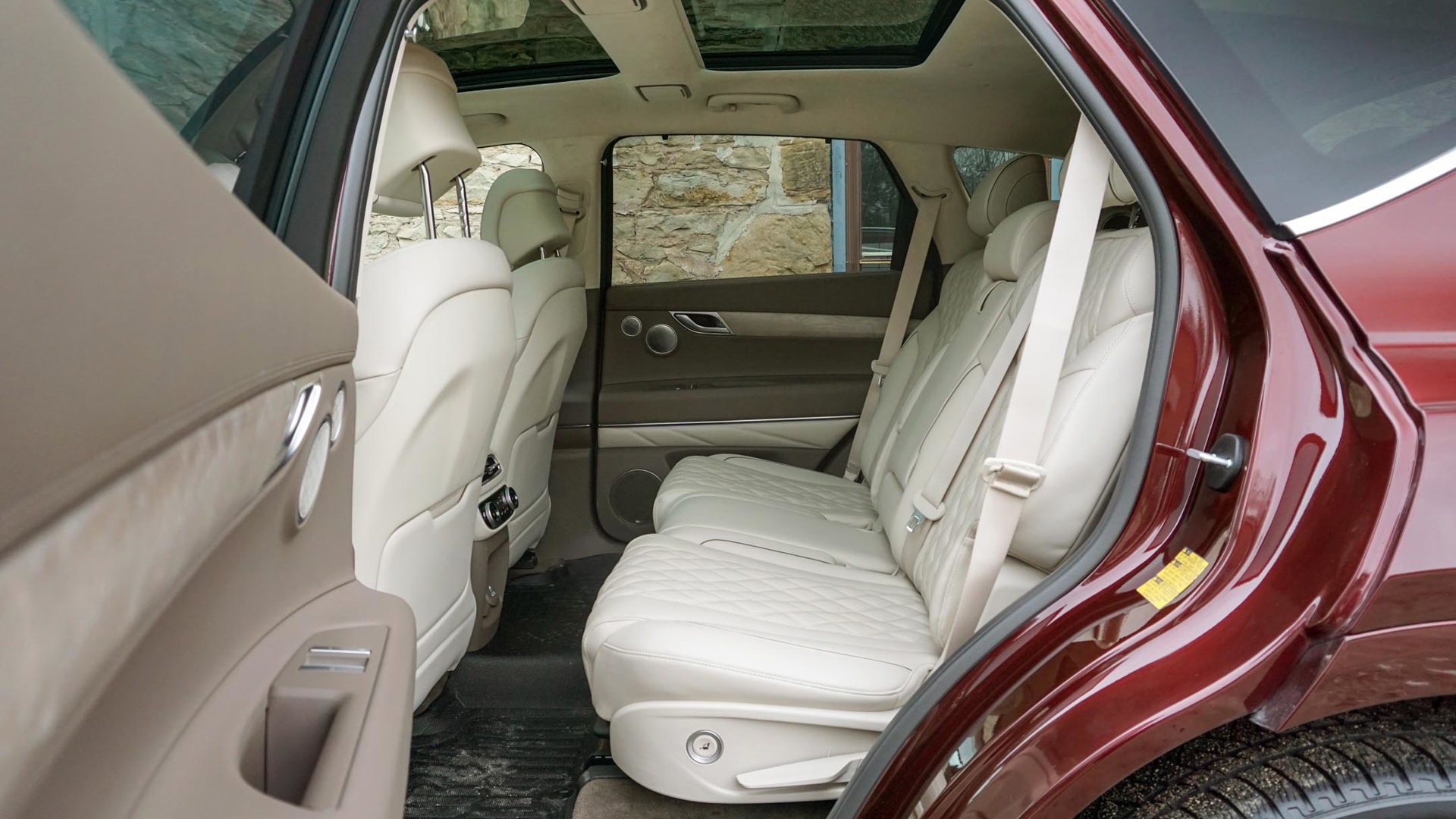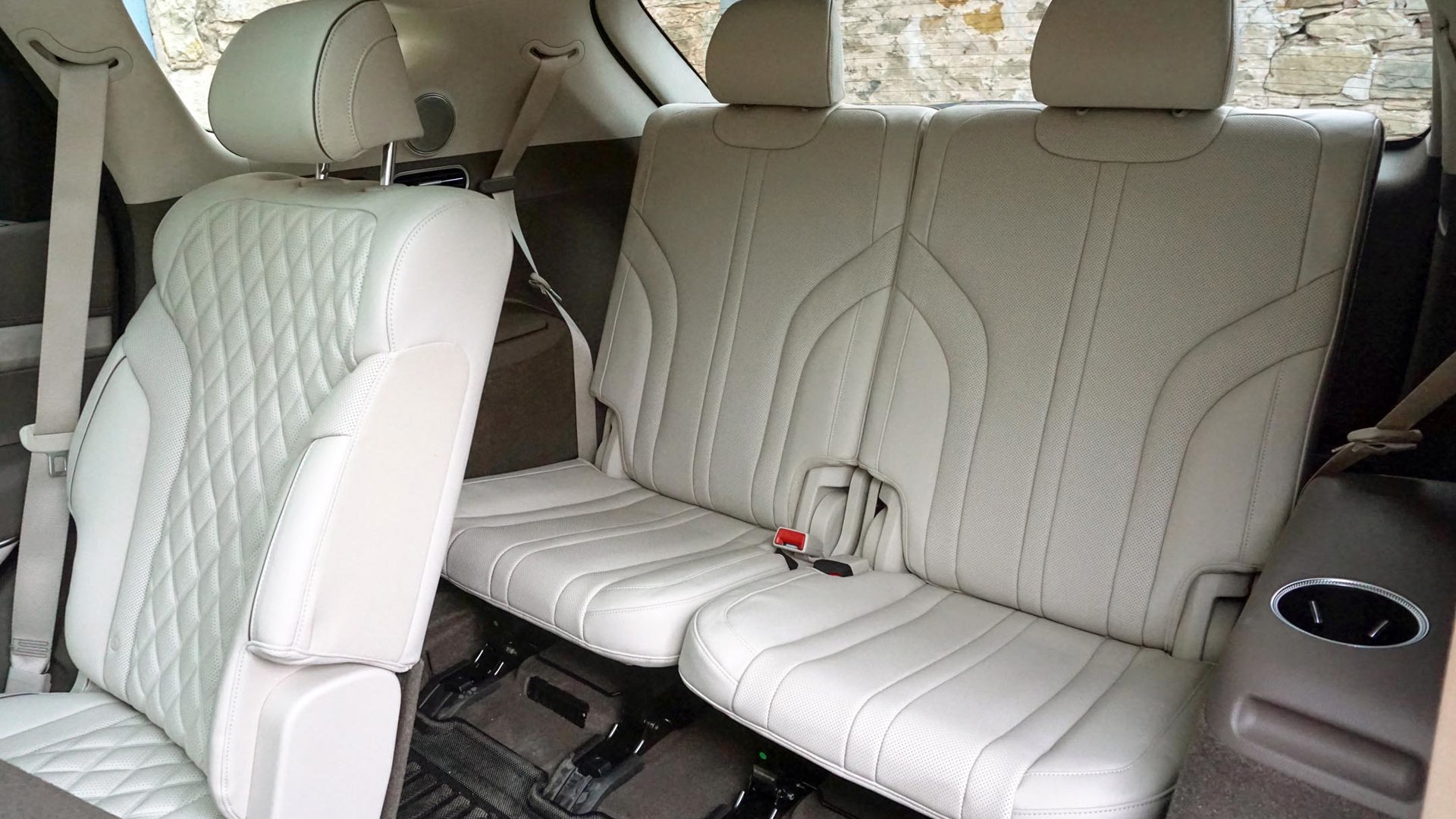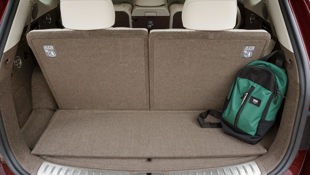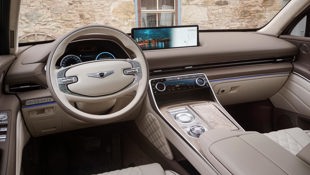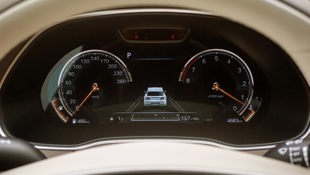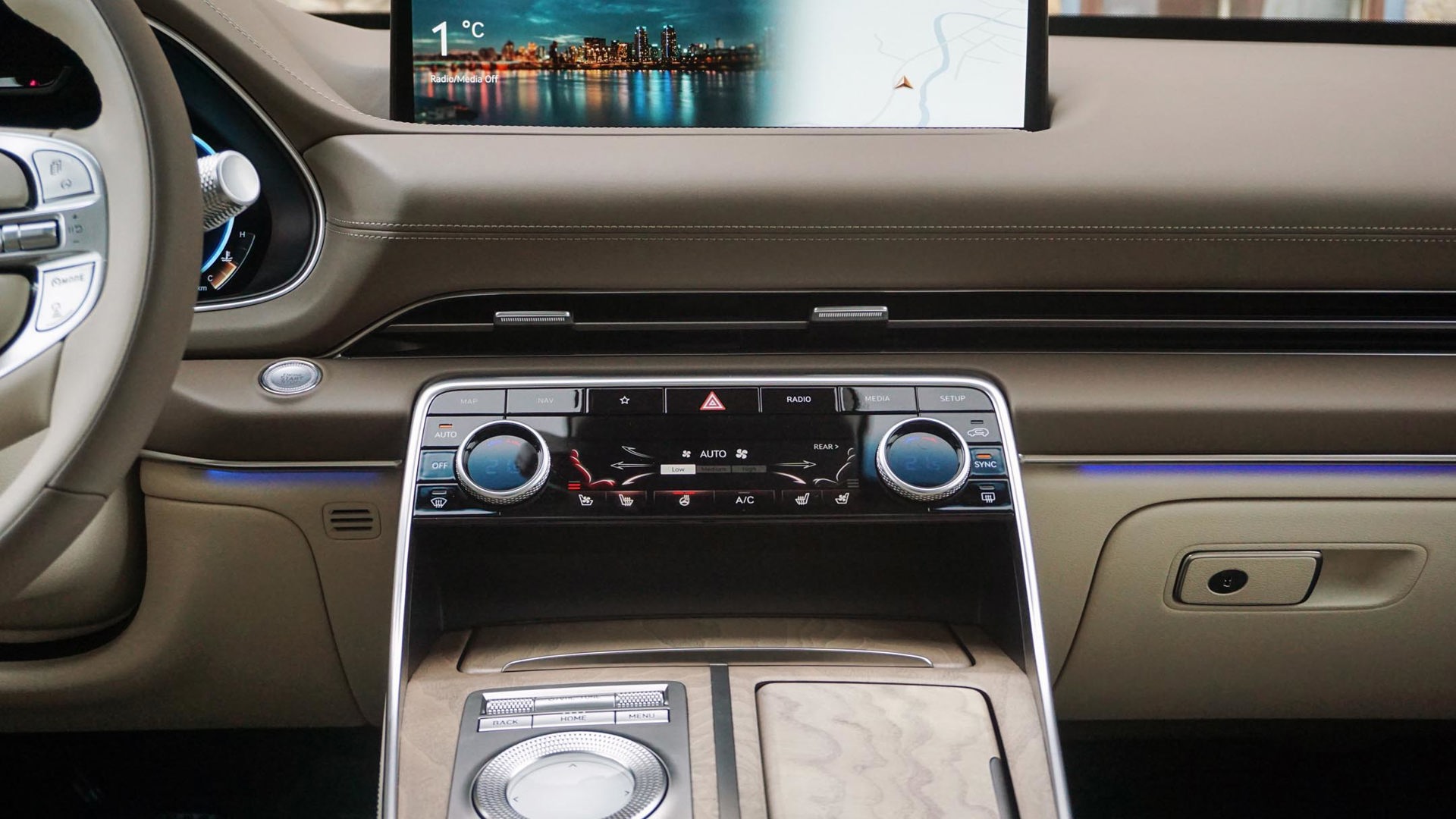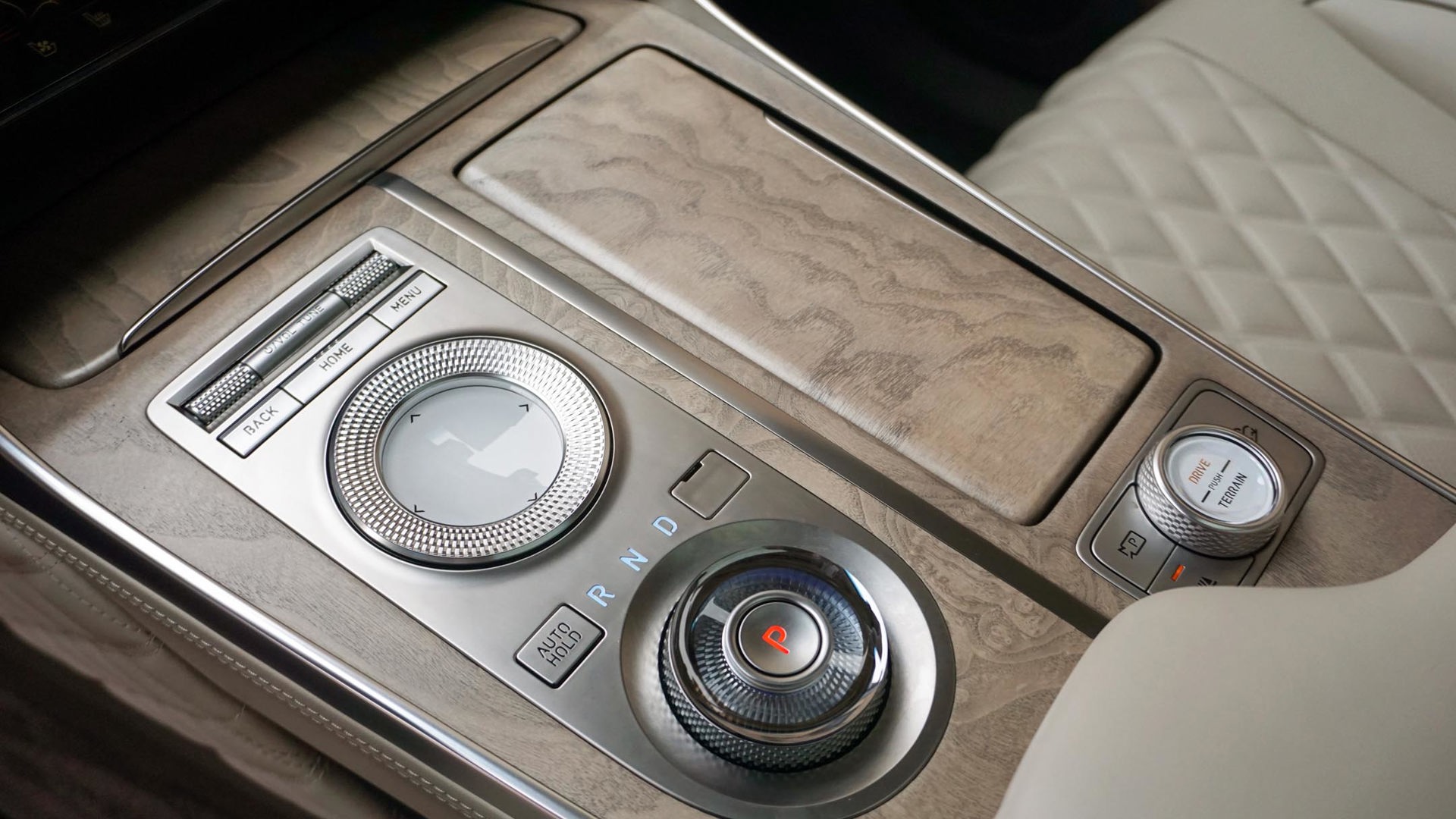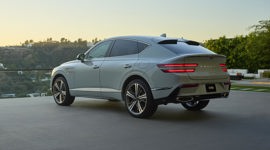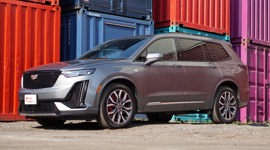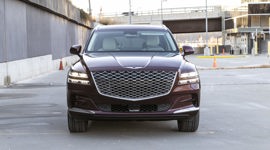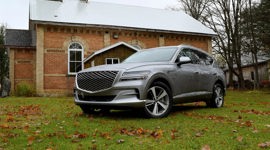 AutoTrader SCORE
AutoTrader SCORE
-
STYLING9/10
-
Safety9/10
-
PRACTICALITY9/10
-
USER-FRIENDLINESS9/10
-
FEATURES9/10
-
POWER8/10
-
COMFORT9/10
-
DRIVING FEEL8/10
-
FUEL ECONOMY7/10
-
VALUE9/10
Whether Hyundai’s decision to launch its own luxury brand is genius or genuinely mad all comes down to perspective.
Pessimists will point out that the last automaker to do the same was Toyota more than 30 years ago, and a lot about the industry has changed since Lexus was introduced. Brand loyalty is strong in the premium space in particular, and cachet can’t be invented overnight. Those two factors alone are major hurdles for any upstart nameplate to overcome – yes, even one with the resources of the Hyundai Motor Group behind it.
Viewed with a sense of optimism, however, the Genesis brand has a bright future ahead. Without any history or bad habits to worry about and all kinds of data about market trends at its disposal, it’s able to chart its own course with products people actually might be interested in.
After starting with a trio of sedans, the 2021 Genesis GV80 gives the brand its first-ever SUV to go up against established rivals that have long kept the lights on for their respective marquees. It also happens to be an outstanding first offering in this highly competitive segment.
Value: 9/10
Mercedes-Benz GLE-Class. BMW X5. Lexus RX. Those are but a few of long-standing entries vying for attention in the space the GV80 now occupies. Its $64,500 starting price happens to be cheaper than those German rivals – as well as the Audi Q7 – by a healthy margin, which has been the Genesis gameplan from the very start. And while the Canadian-made Lexus is cheaper, it lacks the feature content found in the GV80 for its base asking price.
Such is the case throughout the four-trim lineup, with the GV80 undercutting the competition all the way up to this fully loaded 3.5T Prestige trim and its pre-tax price of $85,000. By comparison, a Mercedes-Benz GLE 450 or BMW X5 M50i could easily stretch into six-figure territory with similar equipment, while a Lexus RX 350L is significantly less but can’t keep up with the kind of comfort and convenience features found here.
Comfort: 9/10
While a few niceties offered by the likes of Mercedes and BMW are missing, like heated armrests and door panels or heated and cooled cupholders, none of it takes away from the proper premium experience the GV80 provides – particularly when the top-of-the-line treatment is applied.
Quilted Nappa leather, a massaging driver’s seat, heat and ventilation for the front and second-row chairs, soft-close doors that pull themselves shut, power sunshades for the back doors, and an active noise cancellation system that uses offsetting frequencies to keep unwanted sounds from the cabin all lend to the air of sophistication and comfort in the priciest GV80 model. On top of that, there’s an electronically controlled adaptive suspension in the top trim – as well as the $80,000 3.5T Advanced model – that makes this one of the smoothest riding SUVs this side of $100,000, and perhaps even beyond.
Utilizing camera and navigation data, the suspension is constantly adjusting the dampers at all four corners to offset the worst roads around before it even reaches them. While outsized 22-inch wheels like the ones seen here tend to amplify road imperfections due to all the unsprung weight they carry, the system dials most of it out for relaxed cruising. After an hours-long road trip, the only fault found with the comfort of the GV80 was the odd omission of a massage function for the front passenger seat.
User Friendliness: 9/10
The massage setting for the driver’s seat almost went undiscovered when the GV80 was first picked up for testing, with the only indication of its existence a tiny button mixed in with the various switchgear for its 16-way adjustability. The system also shuts itself off after 30 minutes or so, requiring a fumbling finger to find the little button once again, which is particularly pesky while driving. Over at Lincoln, for instance, the available massaging front seats like the ones in the Corsair are activated through the infotainment system and remain on until manually turned off.
Aside from those minor grievances, just about everything else inside is logically placed for tremendous ease of use, starting with the massive infotainment display that’s standard across the lineup. Spanning 14.5 inches, the touchscreen boasts a sophisticated look and sharp graphics that make it a pleasure to interact with. While it’s set back on the dashboard a touch too far for comfort, requiring a long reach from the driver’s seat, the system also employs a console-mounted controller that’s intuitive enough to get accustomed to (though it can be a little finicky).
The infotainment system also boasts Android Auto and Apple CarPlay compatibility for seamless smartphone integration, and the widescreen display projects across almost all of it, reserving a small portion on the right side for clock or navigation information. While Mercedes uses a similar – albeit smaller – screen in its vehicles, it’s not optimized to show those smartphone systems in a widescreen format, with dead space on either side.
Features: 9/10
Nitpicking the Genesis system, wireless connectivity to those systems is sorely missed, particularly because a wireless phone charger is standard fare. Given it’s so new to the market, the inclusion of such features would surely help the GV80 stand apart from the competition (currently, only the X5 from BMW allows an iPhone to be hooked up wirelessly). And while there are four USB ports to be found inside, none of them are of the USB-C variety. It’s yet another missed opportunity to make the GV80 feel as modern as it is.
That’s about the extent of the shortcomings, however, with plenty of impressive content even in the cheapest model. Dubbed the 2.5T Select, the base version comes with heated seats front and rear, a heated steering wheel, 12-speaker stereo, panoramic sunroof, and a proximity sensor for the power tailgate. There’s also a whole host of advanced safety systems (more on those later) and adaptive cruise control with lane-centring assist, among others.
Moving to the 2.5T Advanced sees the price climb to $70,000, bringing with it extras like leather upholstery, ventilated front seats, tri-zone automatic climate control, and 20-inch wheels (19s are standard), while the 3.5T Advanced is $10,000 more and adds third-row seats, a 21-speaker stereo, and that outstanding suspension setup.
Finally, the fully loaded 3.5T Prestige gets better leather upholstery, a digital gauge cluster with 3D effect, and Hyundai’s automated parking system that allows the vehicle to pull forward and back in a straight line via the keyfob while the driver is standing outside. All that’s in addition to the features mentioned before like the massaging driver’s seat, soft-close doors, rear sunshades, and ventilated seats in the back. It’s all enough to make the GV80 a viable contender in the segment, leaving very little to be desired aside from those modern device connection amenities.
Safety: 9/10
The safety equipment that comes in every GV80 is equally impressive, with LED lighting all around, automatic high-beams, automatic rain-sensing wipers, front and rear parking proximity sensors, and 10 airbags throughout the cabin. There’s also all kinds of advanced safety gear like automatic emergency braking, lane-departure warning and lane-keep assist, and blind-spot monitoring, while all but the base version add a head-up display, surround-view monitor, and camera-based blind-spot monitoring that projects a live look at either side of the vehicle in the instrument cluster when the indicator is activated.
It’s all easy to engage – or disengage – on the fly, with most features accessed through the gauge cluster, and steering wheel controls for the adaptive cruise control system. Better still, the lane-centring assist that applies automated steering inputs can be switched on or off via a clearly labelled button. Rather than packaged together, it’s a complementary feature that can be disengaged while retaining the functionality of the adaptive cruise control.
Driving Feel: 8/10
The manner in which the GV80 cruises around is something of a blend between a confident cruiser like the BMW X5 and a relaxed one like the Lexus RX. It’s not quite as dynamic as that German adversary, nor is it as subdued as its rival from Lexus. While there isn’t a ton of feel to the steering system, it has enough resistance to know it’s working and which direction the wheels are pointing.
Power: 8/10
And then there’s what’s powering those wheels in the first place. All-wheel drive and an eight-speed automatic transmission are standard regardless of trim; it’s only what’s connected to that drivetrain that differs. As the names would suggest, both the 2.5T Select and Advanced models use a turbocharged 2.5L four-cylinder engine that makes 300 hp and 311 lb-ft of torque.
Moving to the 3.5T Advanced or Prestige versions sees the cylinder count grow by two, with a 3.5L V6 under the hood and a pair of turbochargers bolted to it. Generating 375 hp and 391 lb-ft of torque, the latter of which kicks in at just 1,300 rpm, combustible force is delivered smoothly, though it’s not done with a tremendous urgency. The V6-powered GV80 certainly isn’t going to keep up with an AMG-tuned Mercedes GLE-Class, though Genesis isn’t making claims as such.
Fuel Economy: 7/10
Opting for the larger of the two engines means an obvious increase in fuel consumption, with the V6 burning premium-grade gas to the tune of 12.9 L/100 km in the city, 10.4 on the highway, and 11.8 combined, according to the automaker. (The four-cylinder is rated at 11.3 L/100 km, 9.5, and 10.5, respectively, in the same conditions.)
That’s within the ballpark of key competitors from brands like Mercedes, BMW, and Lexus, among others, though it was tough to match those numbers during testing. In fact, it was only after a road trip spanning more than 1,200 km of mostly highway driving that the average hit 11.7 L/100 km; the 300 km before that saw a combined average of 13.2 L/100 km with winter tires but not much snow or cold conditions to contend with.
Styling: 9/10
It was during that long road trip that the gravitational pull of the GV80’s styling was on full display, turning heads on the highway and around town. Genesis has certainly gone in a bold design direction, the gaping diamond-pattern grille an eye-catching piece. The split lighting all around is something of an acquired taste though it’s unique nonetheless, looking like nothing else on the market.
It’s a little more conventional inside, with similar vibes to any other premium brand. Flowing lines and quilted patterns are peppered throughout the space, easily making a convincing case to anyone who didn’t know any different that this is an Audi. But for all the well-executed details, two stand out like sore thumbs inside this tester’s ivory and tan interior: the black signal and wiper stalks. While Genesis isn’t the only brand to use parts-bin pieces like these, they look like afterthoughts here.
Practicality: 9/10
The cabin isn’t just a stylish space but a useful one, too. Settling into either front seat sees ample space and decent outward visibility provided, while the second-row bench features more than enough room for two more occupants (or three in a pinch) to get comfortable. There are also all kinds of controls to move the seats around, including buttons on the side of the front passenger chair for it to be slid and tilted should more room be required in the second row.
Storage for small items is decent at best, with tiny door pockets that are barely big enough for a plastic container of gum, though the centre console features a passthrough underneath and a reasonably deep covered bin. Cargo room, too, isn’t bad, with 911 L behind the second-row seats and more buttons in the back to fold them in a flash (the space grows to 2,379 L with them stowed). However, the third-row seats that come in V6 models like this one are best kept stowed outside of emergency situations, with room for people they provide rather cramped and only 328 L of cargo space behind them. There’s a reason BMW finally built the X7, and squeezing seven people into an SUV this size is it.
The Verdict
Predicting whether Genesis will find the sustained success Lexus did is about as easy as it is for an adult to squeeze into that third row (read: it’s not). It’s certainly not for a lack of trying, though, and the 2021 Genesis GV80 is a commendable first attempt at building an SUV that’s all but imperative to this brand’s survival. It sticks to the Genesis playbook of costing less than much of the competition, only unlike with past products, it doesn’t feel like it makes any sacrifices in the process.
| Engine Displacement | 3.5L |
|---|---|
| Engine Cylinders | Turbo V6 |
| Peak Horsepower | 375 hp @ 5,800 rpm |
| Peak Torque | 391 lb-ft @ 1,300–4,500 rpm |
| Fuel Economy | 12.9 / 10.4 / 11.8 L/100 km cty/hwy/cmb |
| Cargo Space | 328 / 991 / 2,379 L behind 3rd/2nd/1st row |
| Model Tested | 2021 Genesis GV80 3.5T Prestige |
| Base Price | $85,000 |
| A/C Tax | $100 |
| Destination Fee | Included |
| Price as Tested | Included |
|
Optional Equipment
N/A
|
|
